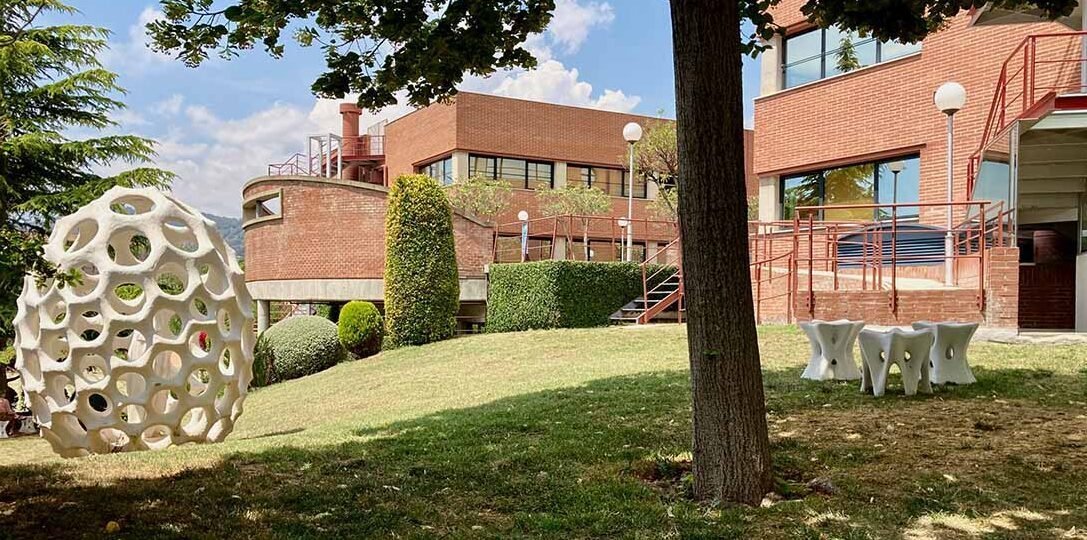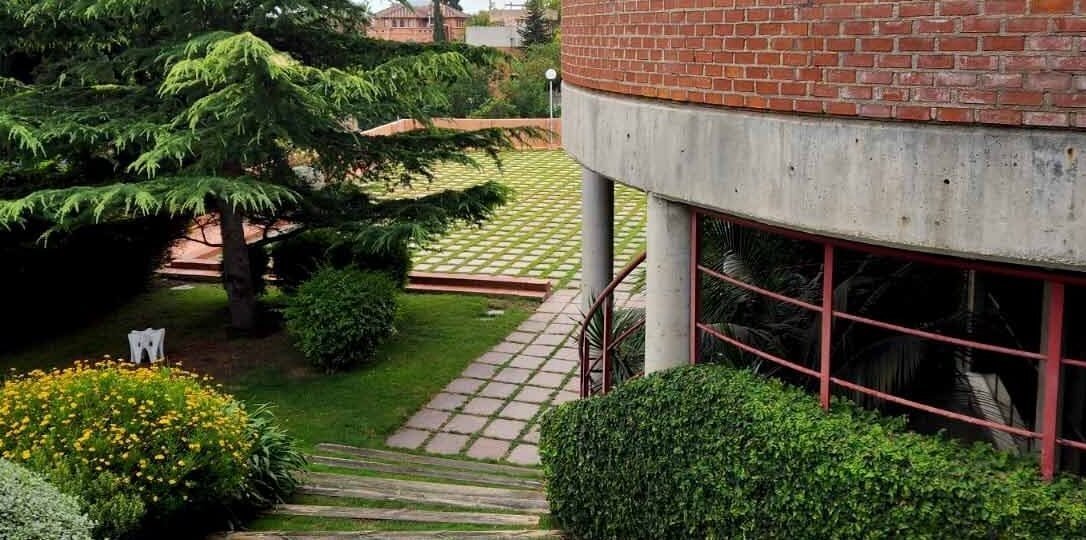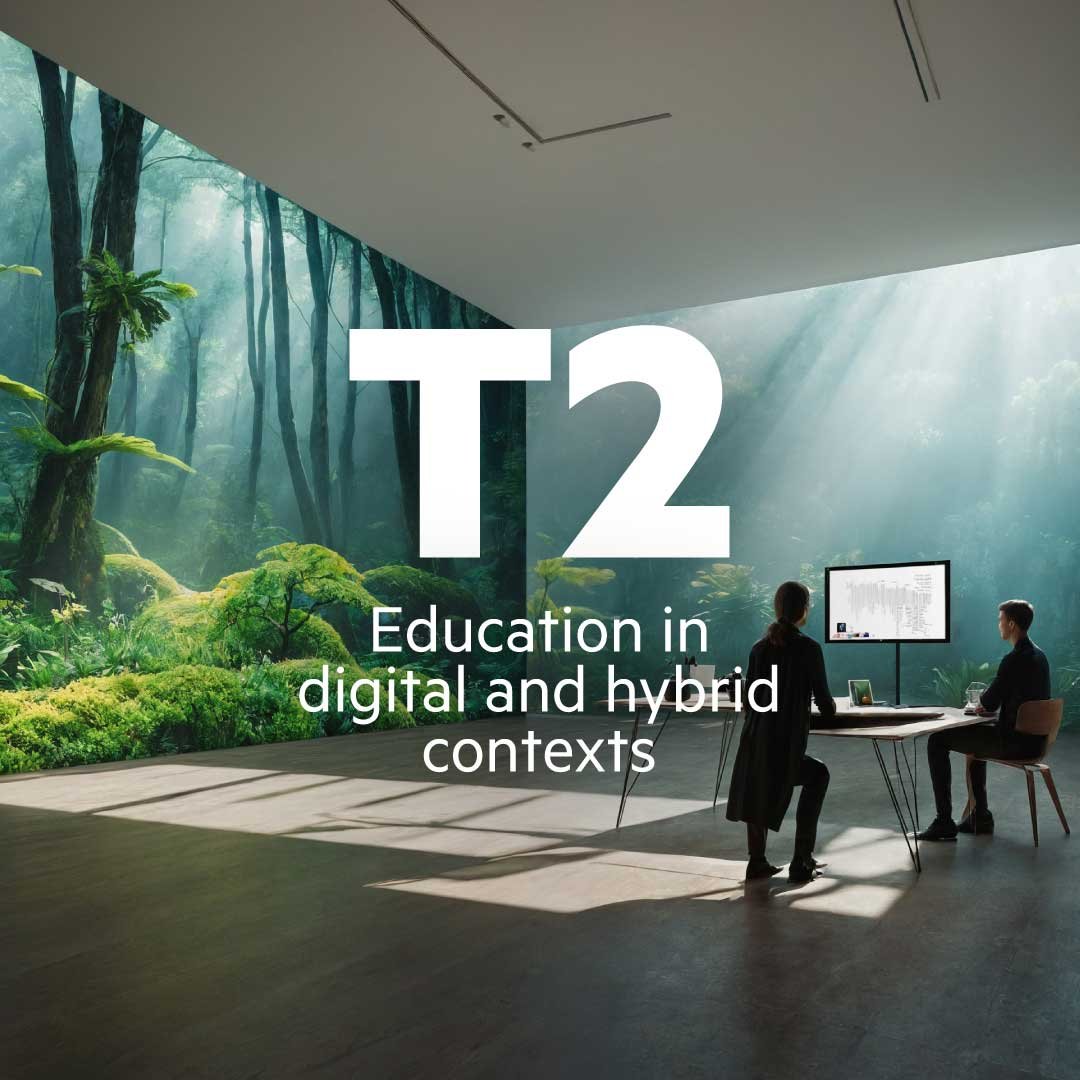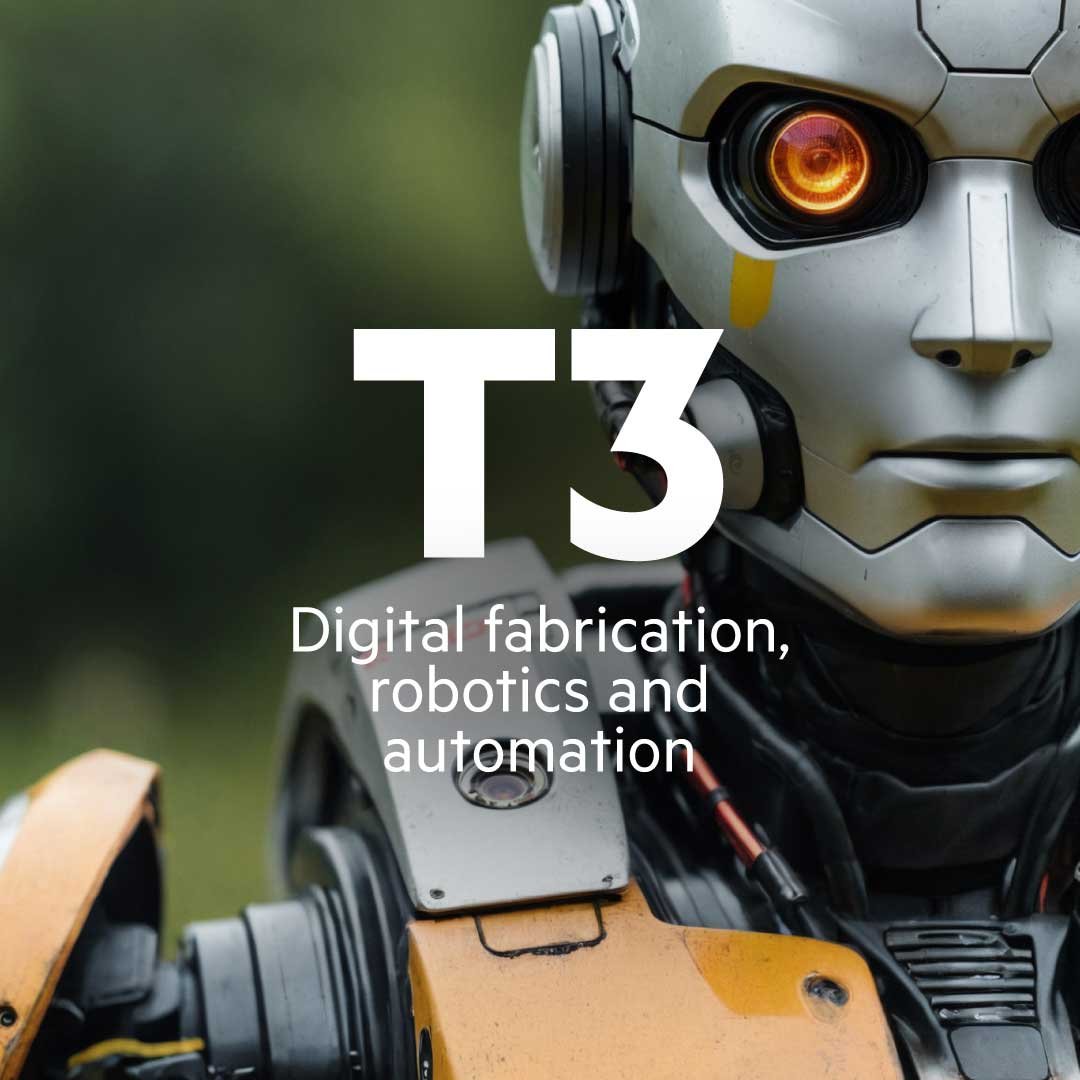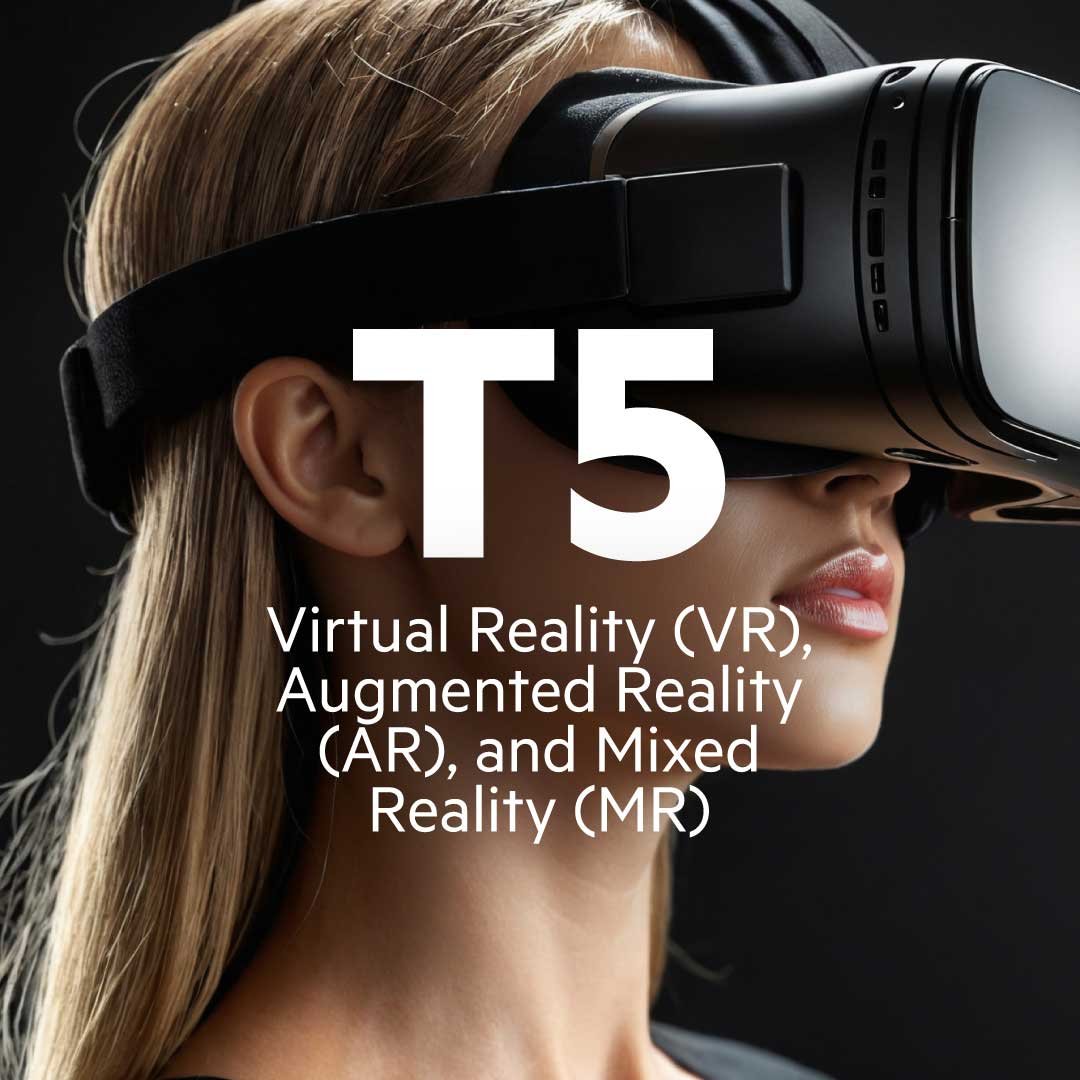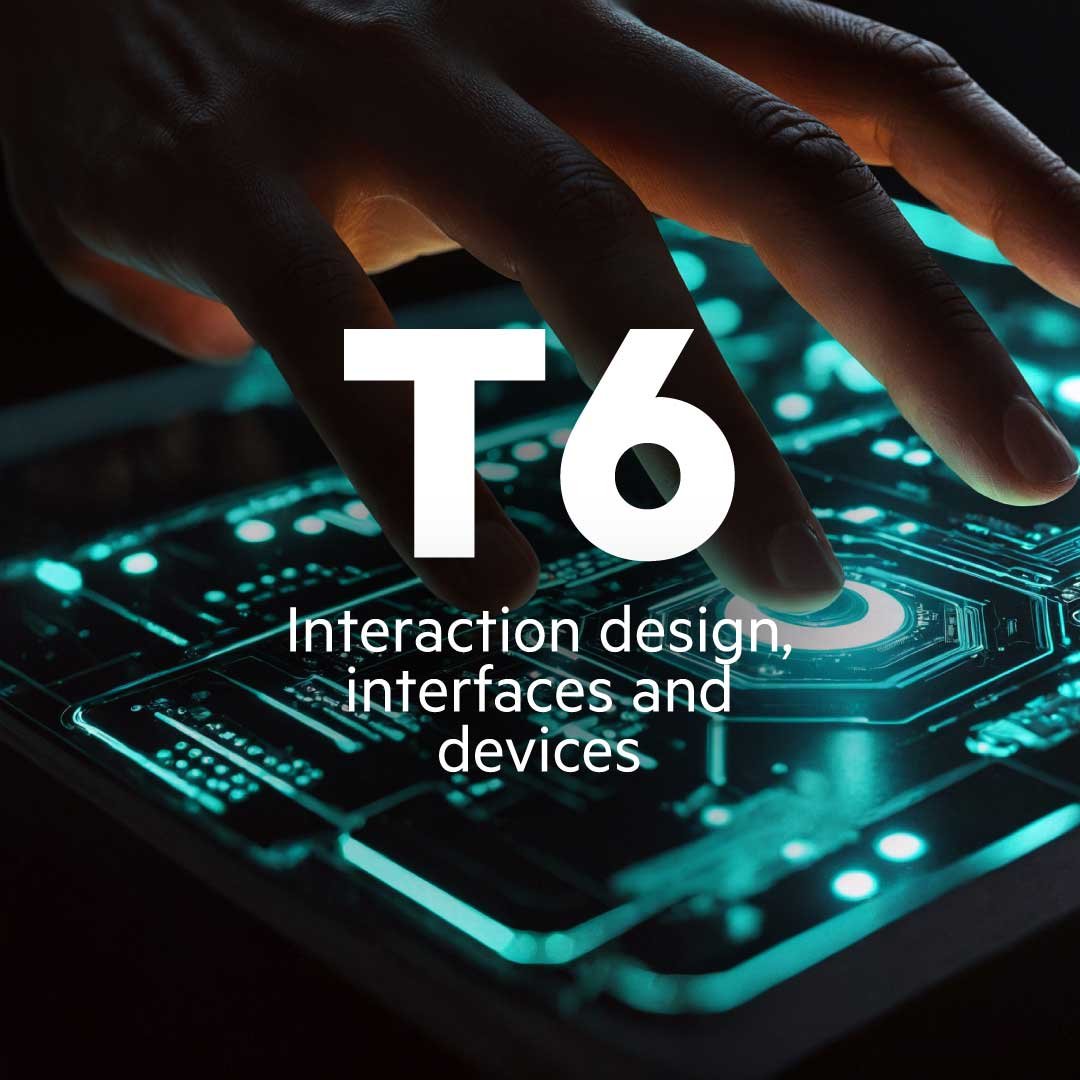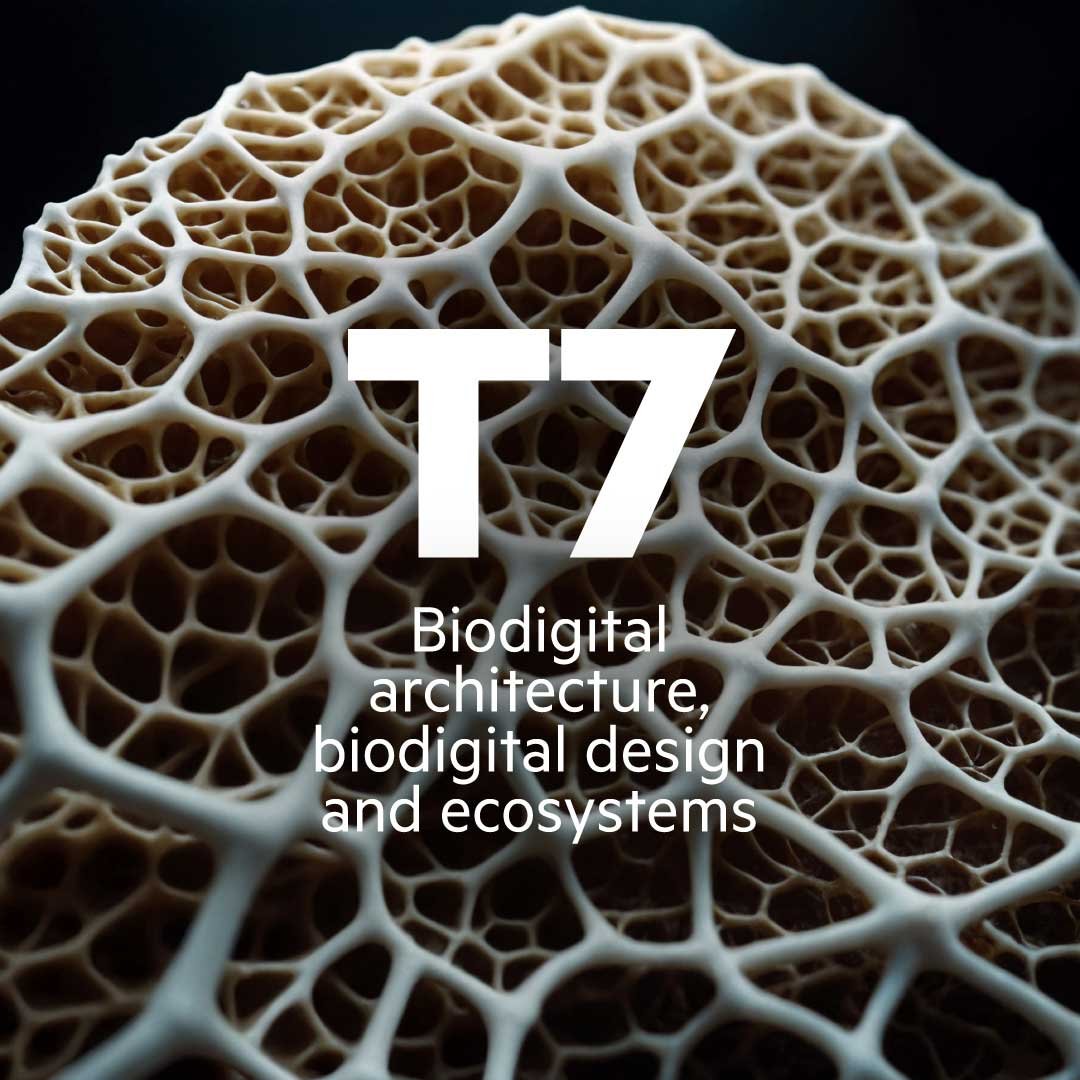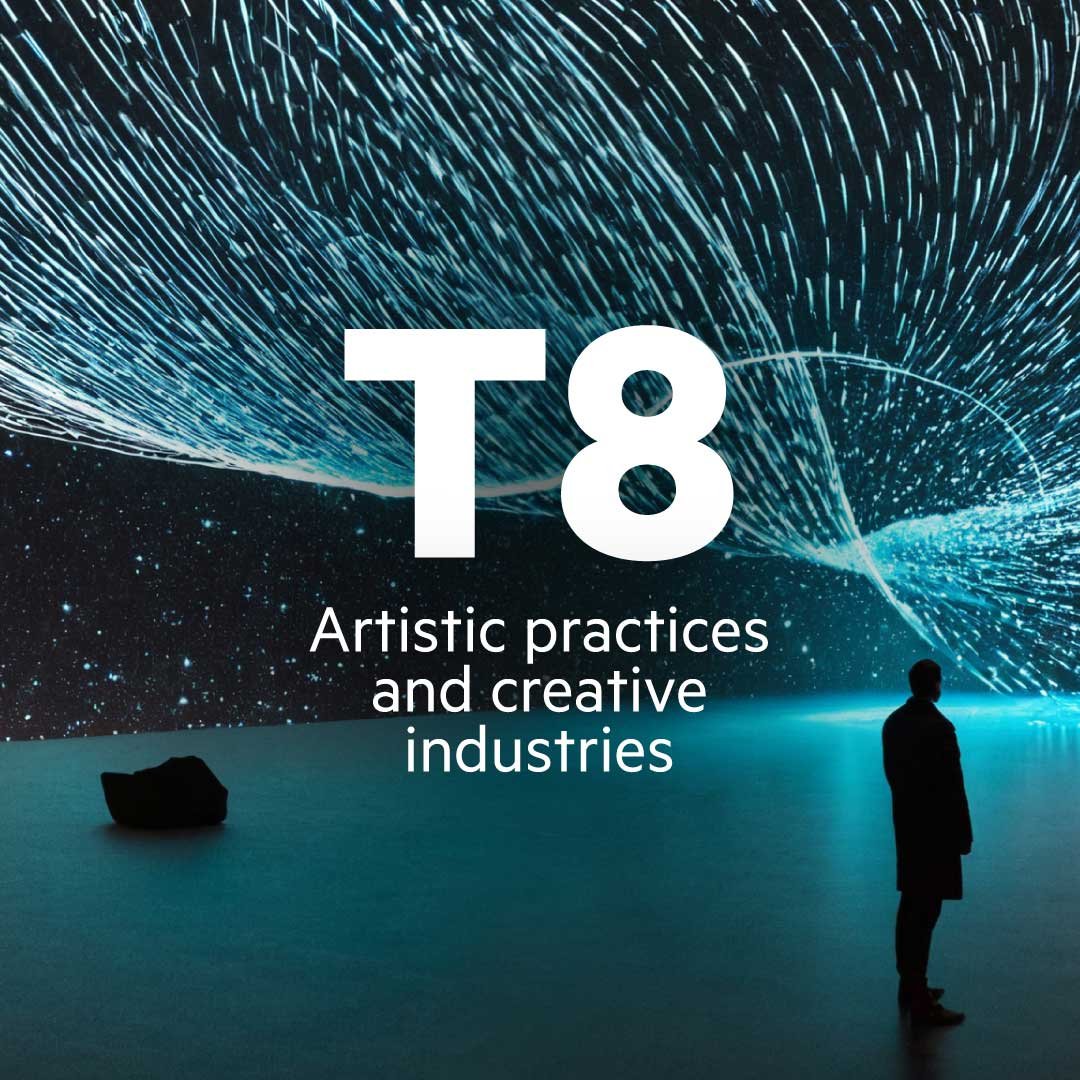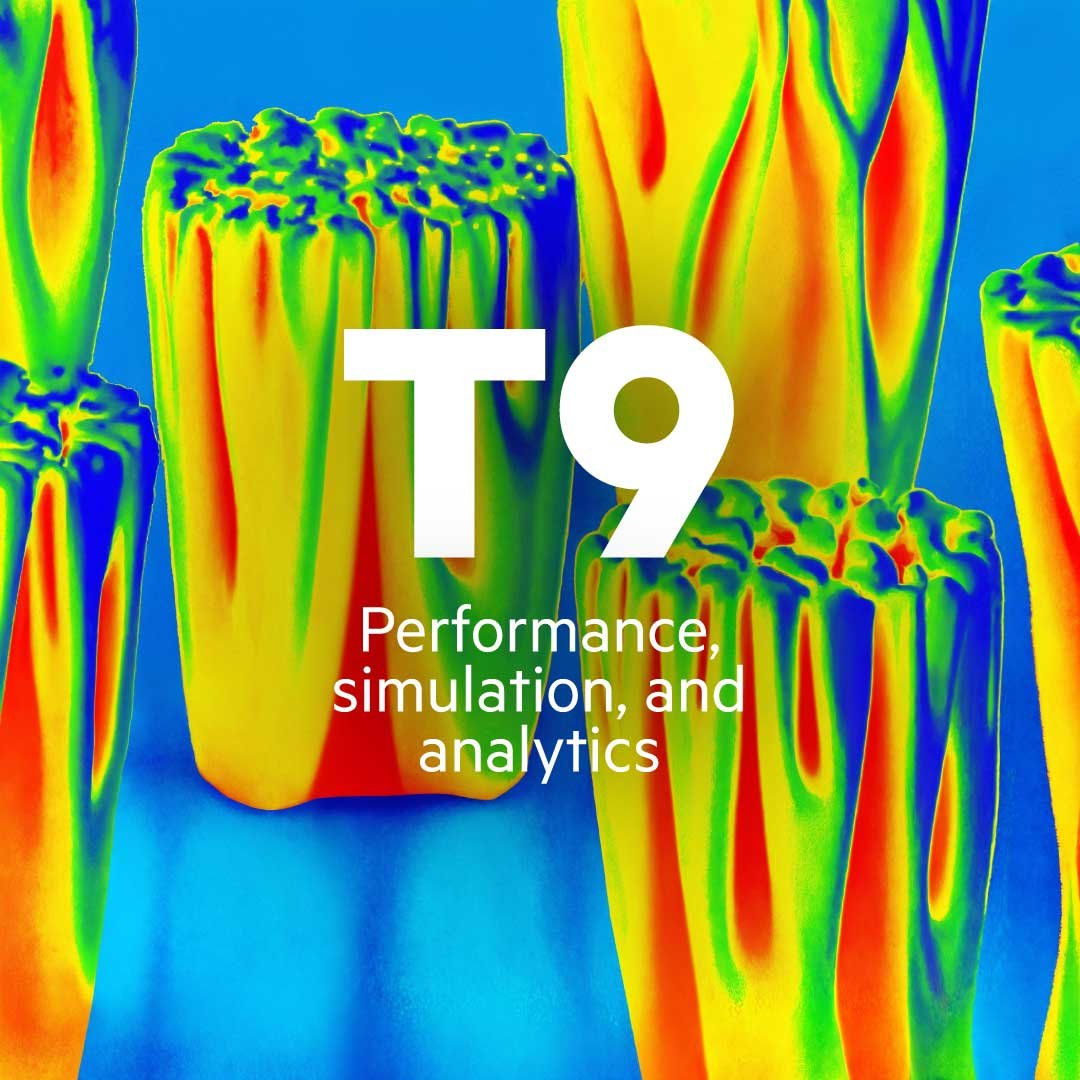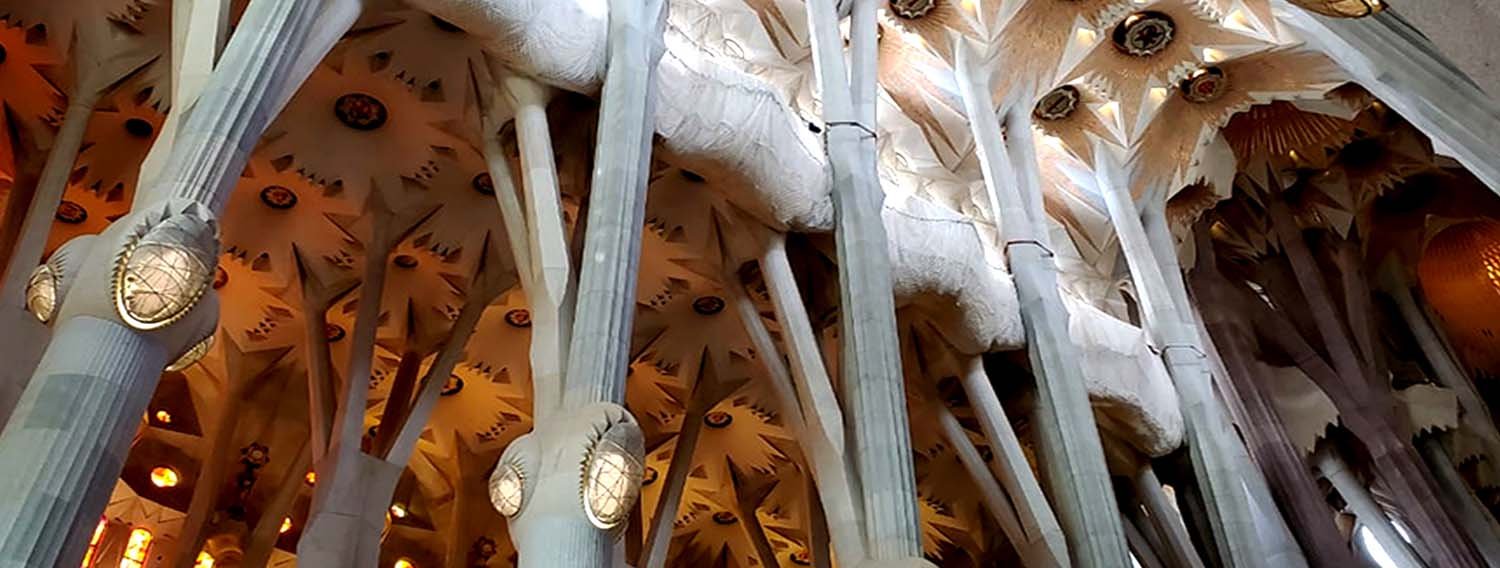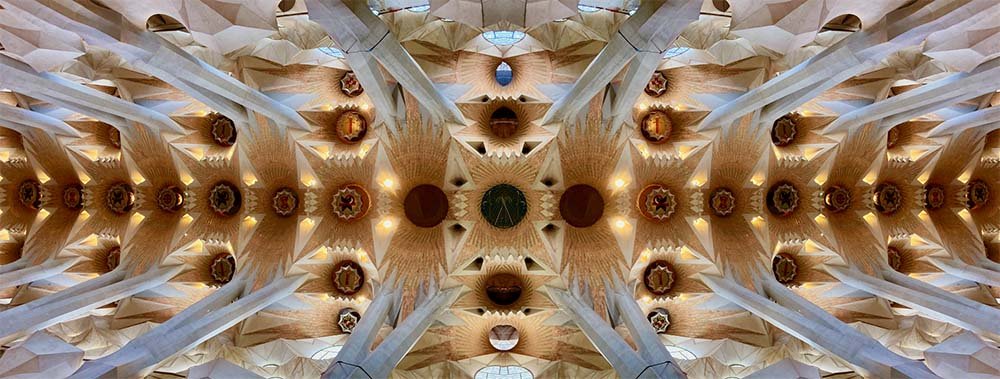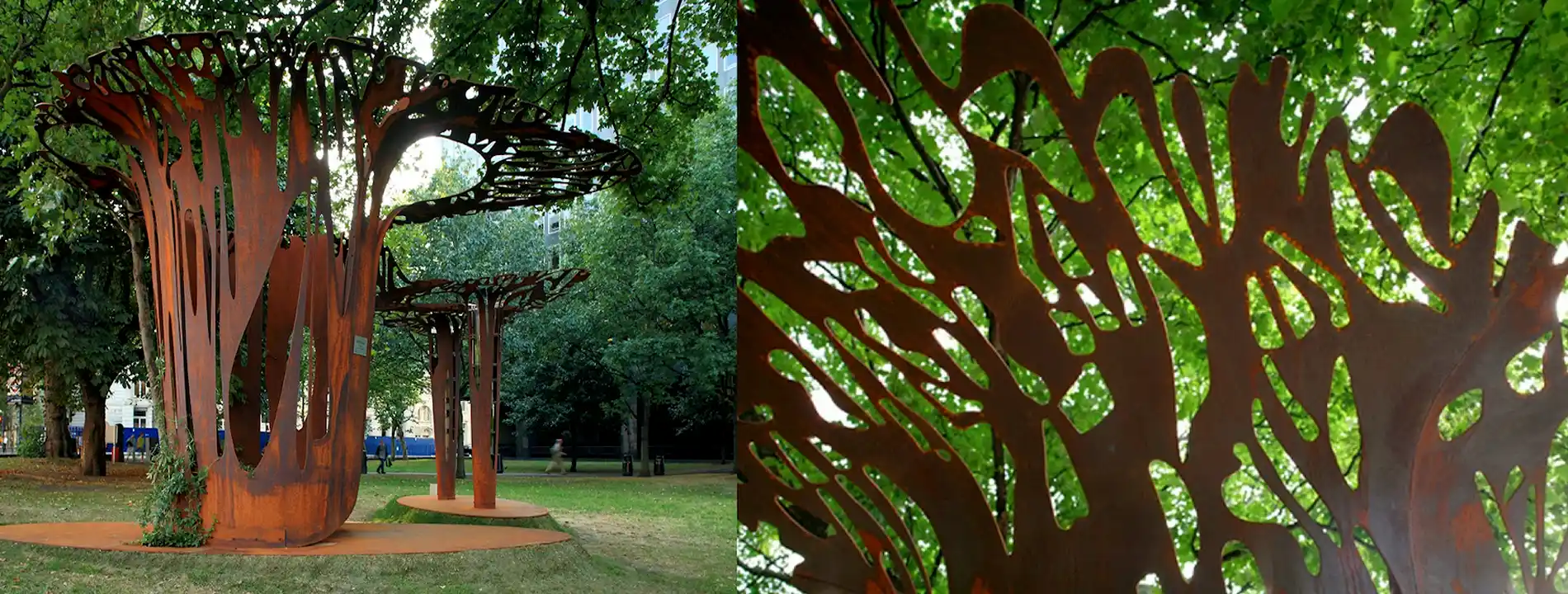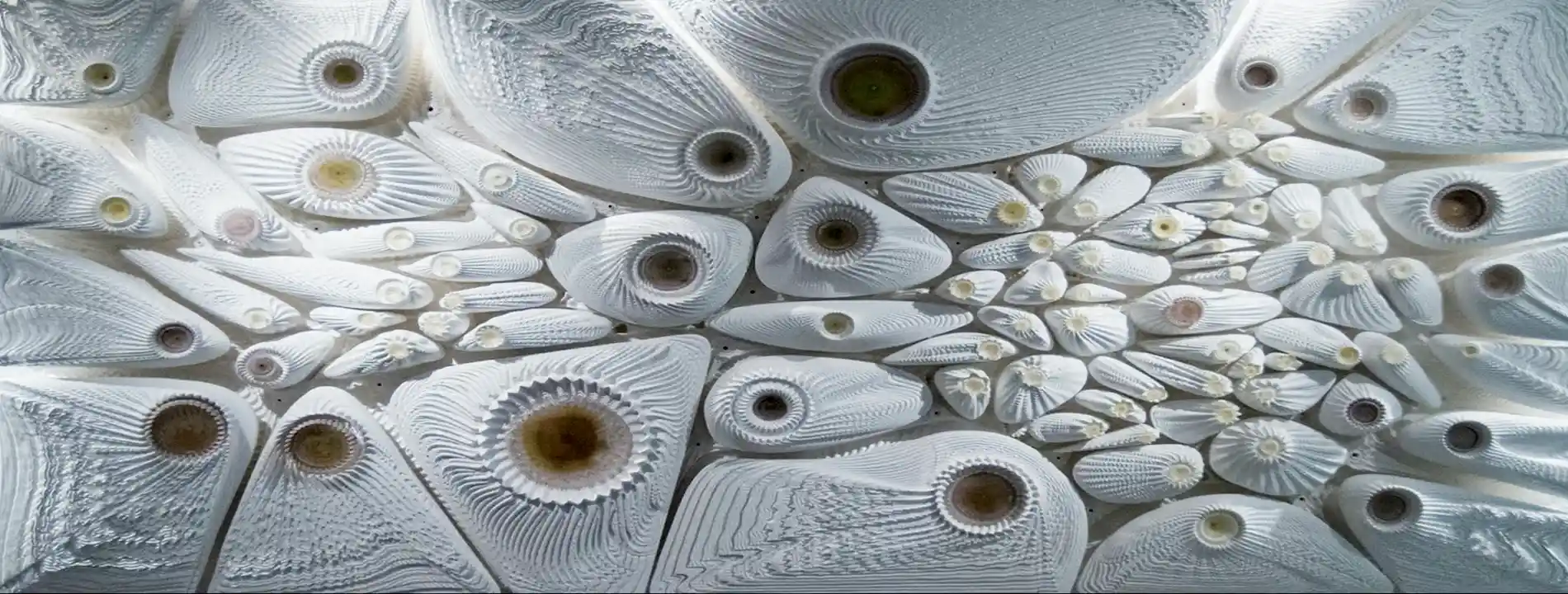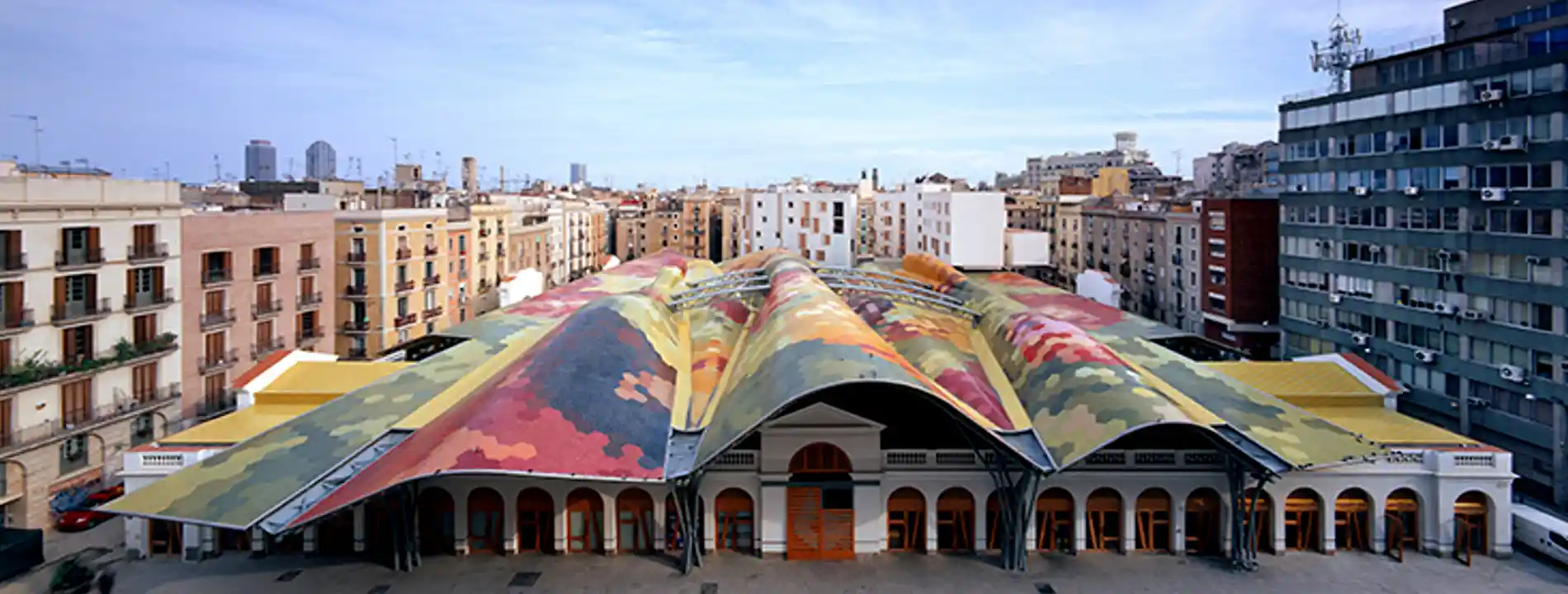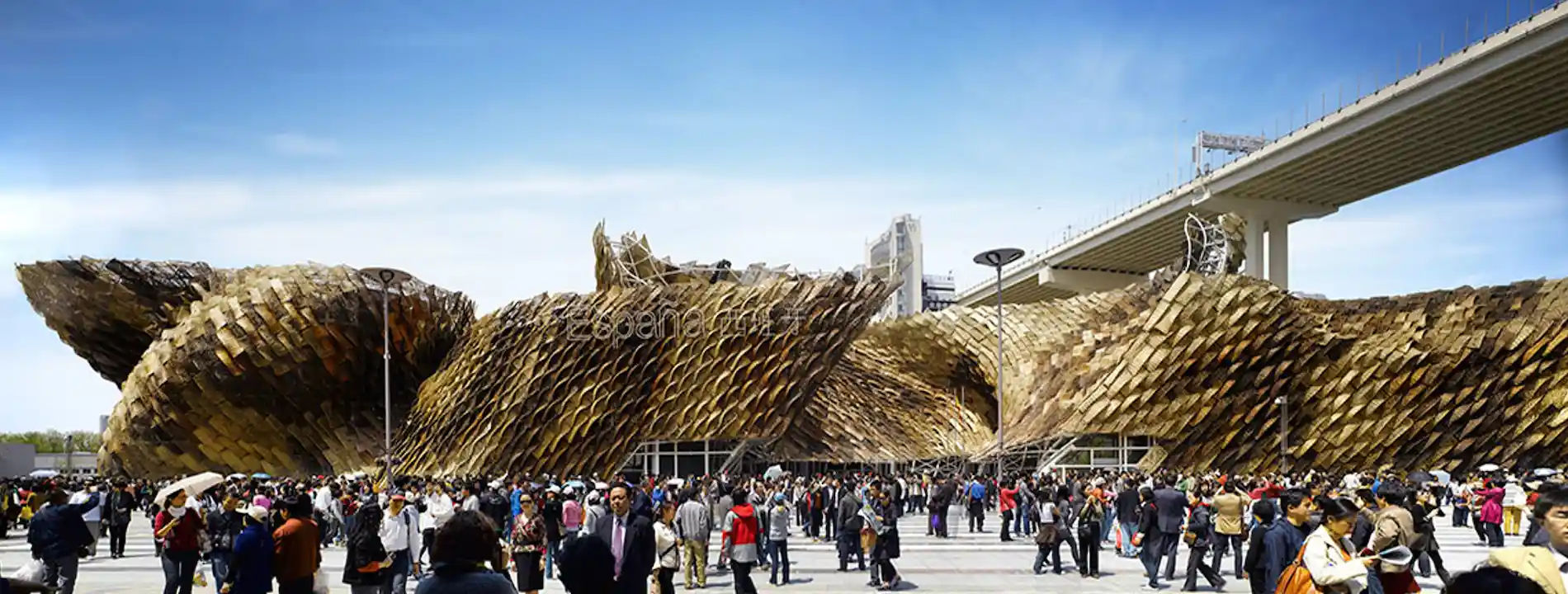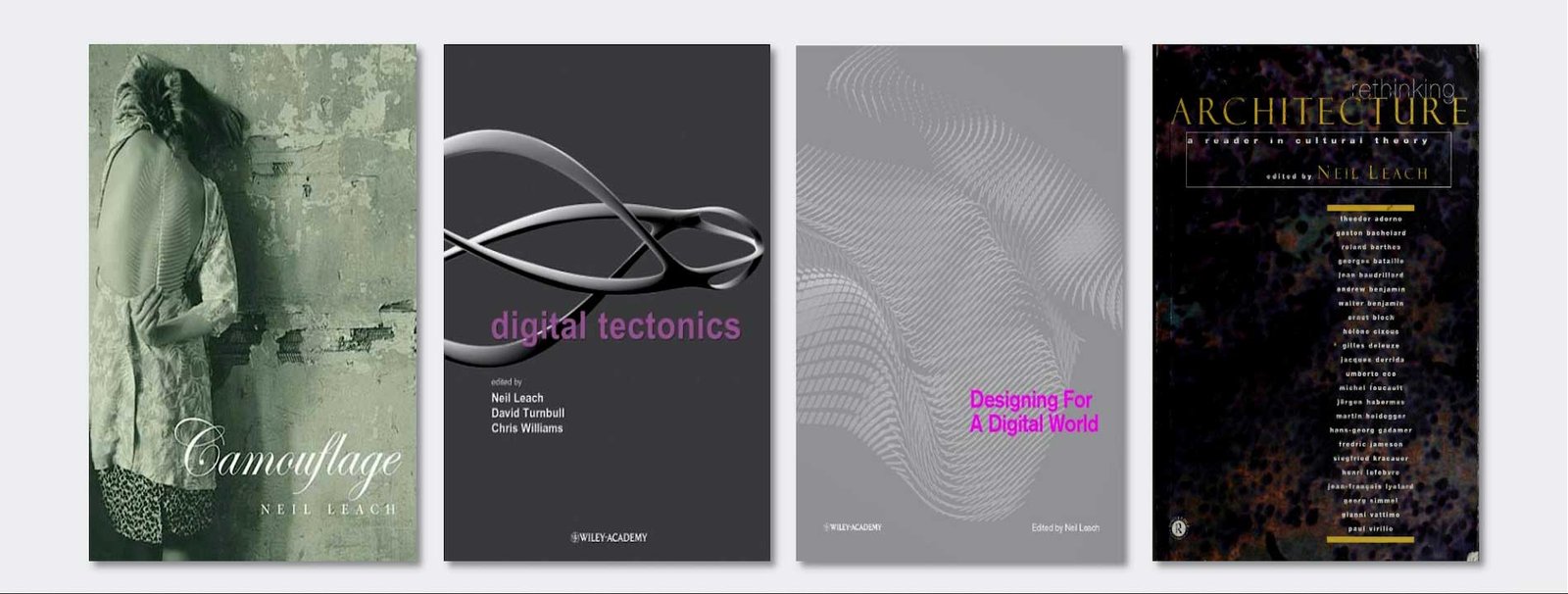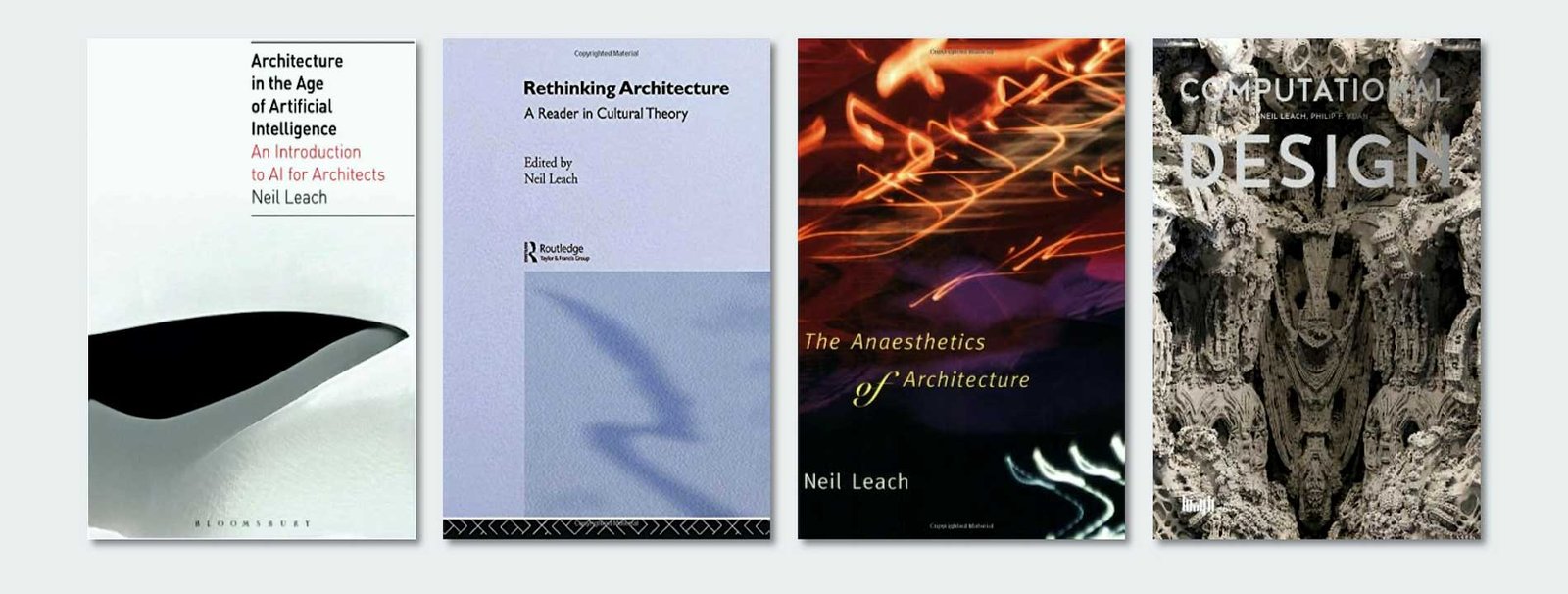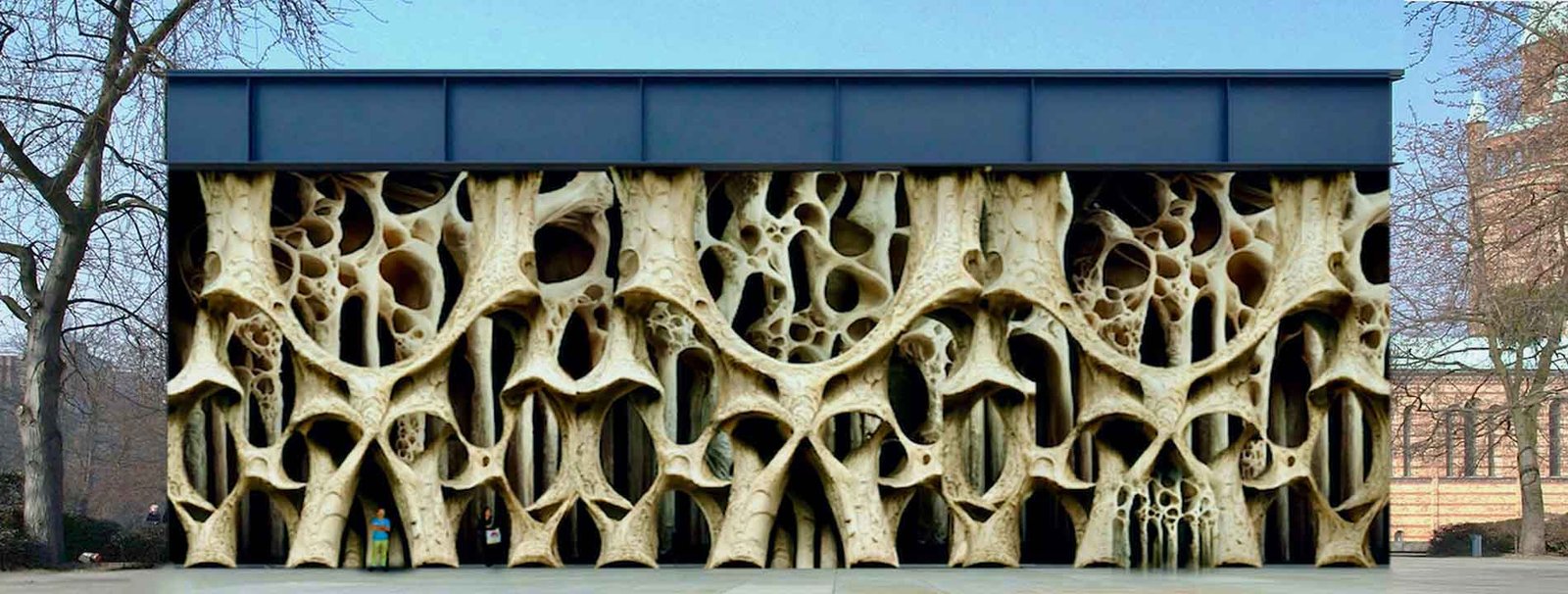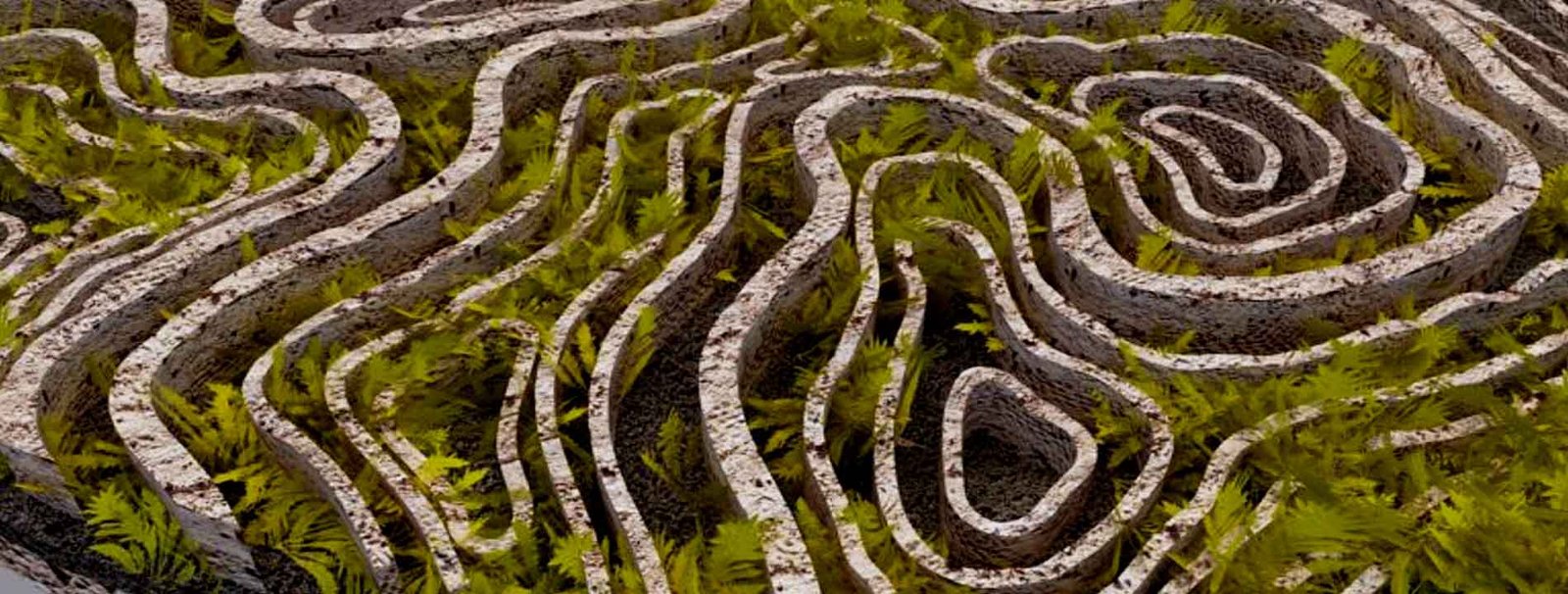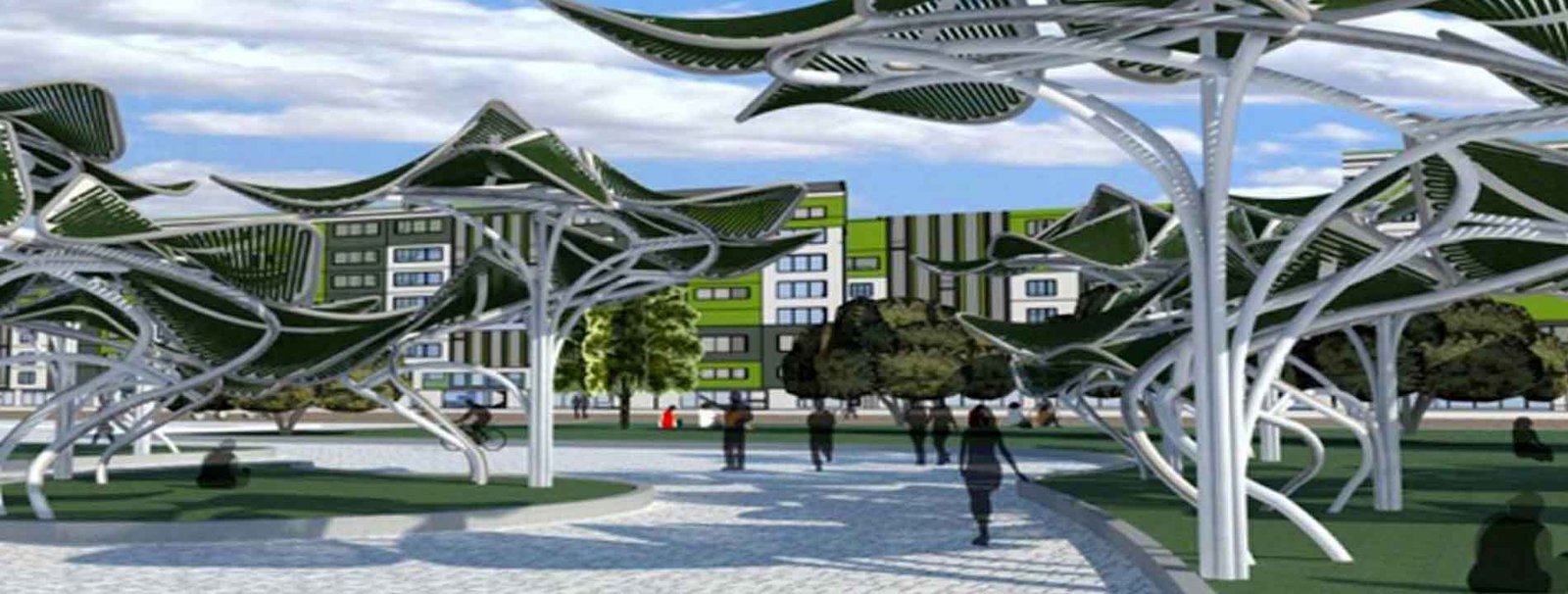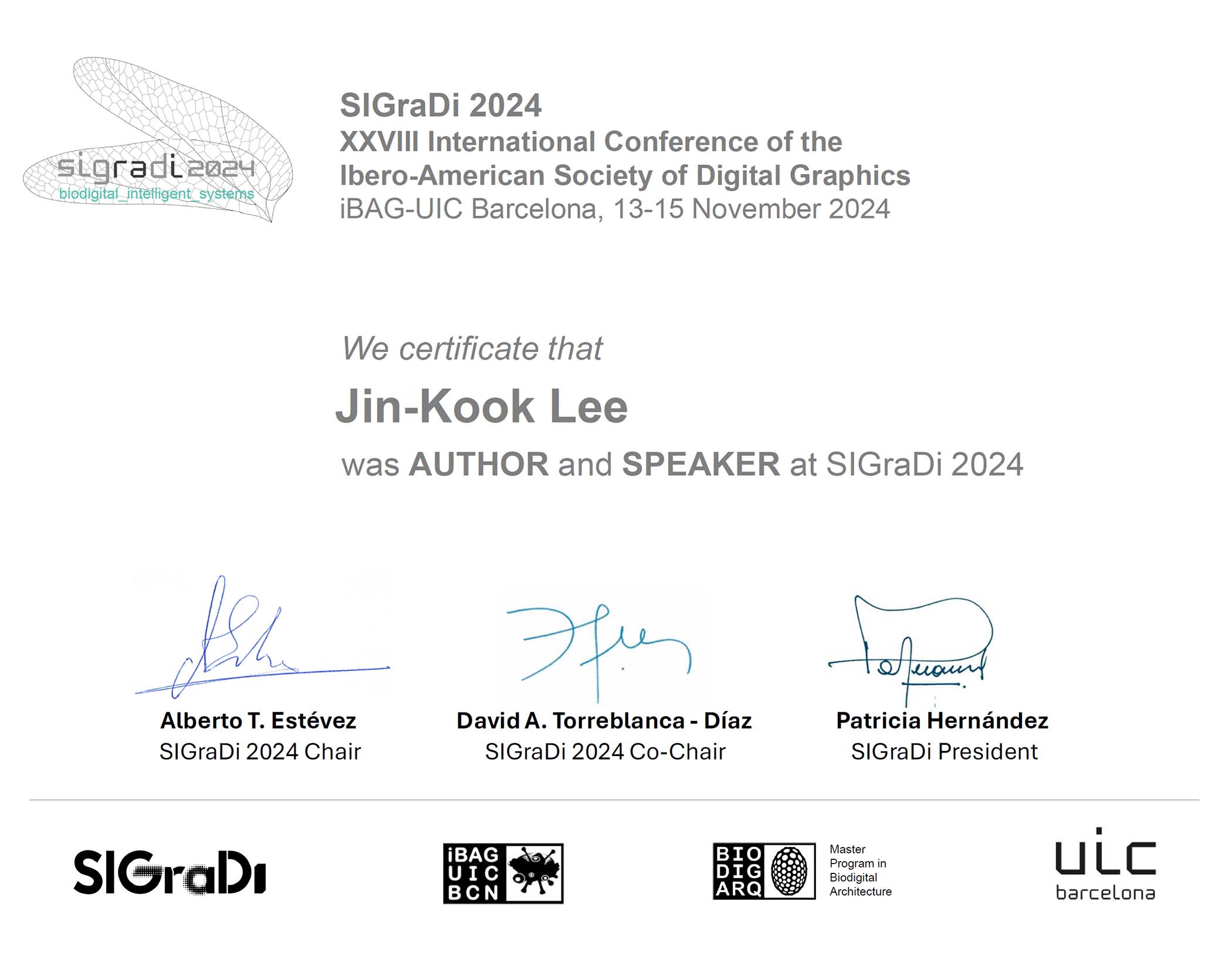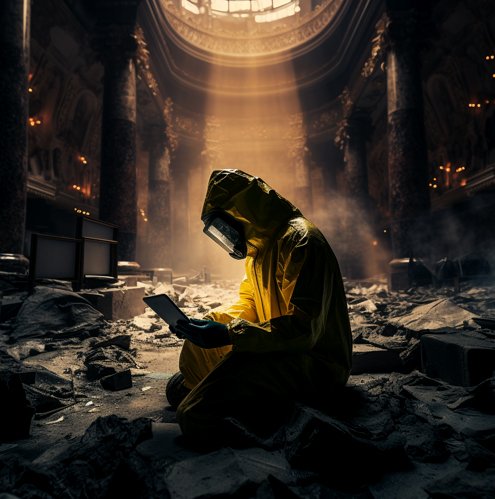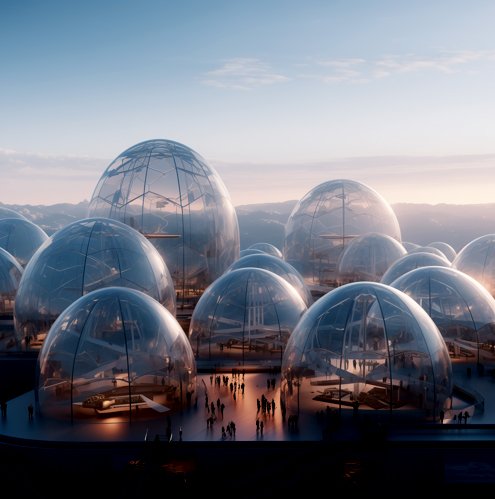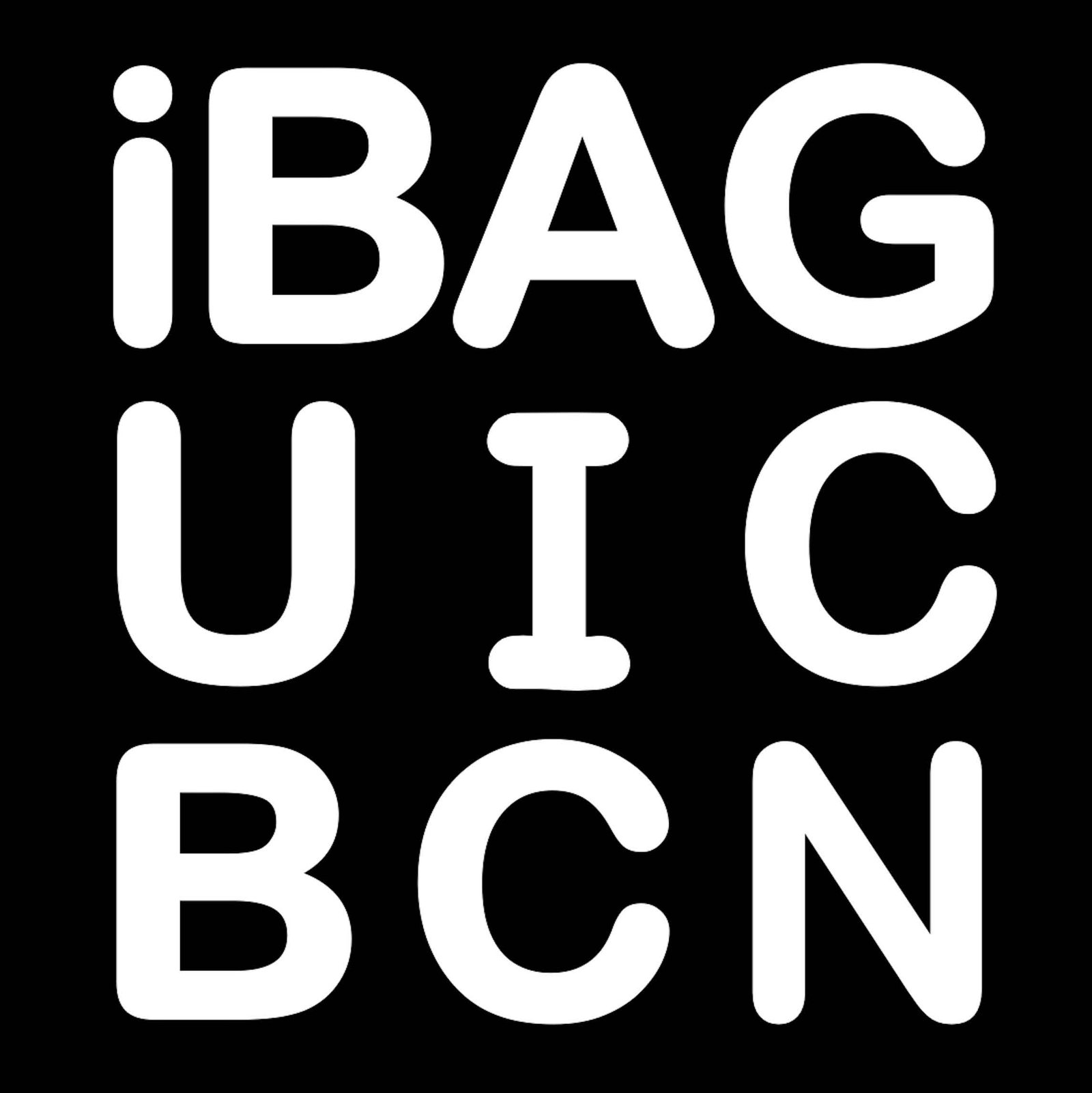Host
UIC Barcelona
innovation and development.
iNSTITUTE FOR BiODiGITAL ARCHITECTURE &
GENETICS (iBAG)
Basically, it is about applying the new biological and digital techniques to architecture and design. This led to the creation of the world’s first genetic architecture laboratory in 2000, where genetics began to be applied to architecture (bioluminescent trees, biolamps, bioprinting, electron microscopy structures research, etc.), and the first digital architecture laboratory located in a Spanish school of architecture (design and digital manufacturing). And all organizing an international interdisciplinary group of architects, designers, artists, engineers, biologists, geneticists and philosophers. New understanding from nature and computation, from natural intelligence and artificial intelligence, from bio-learning and machine-learning, to the potential of bio-manufacturing and digital-manufacturing.
iBAG images, © Alberto T. Estévez
Our team
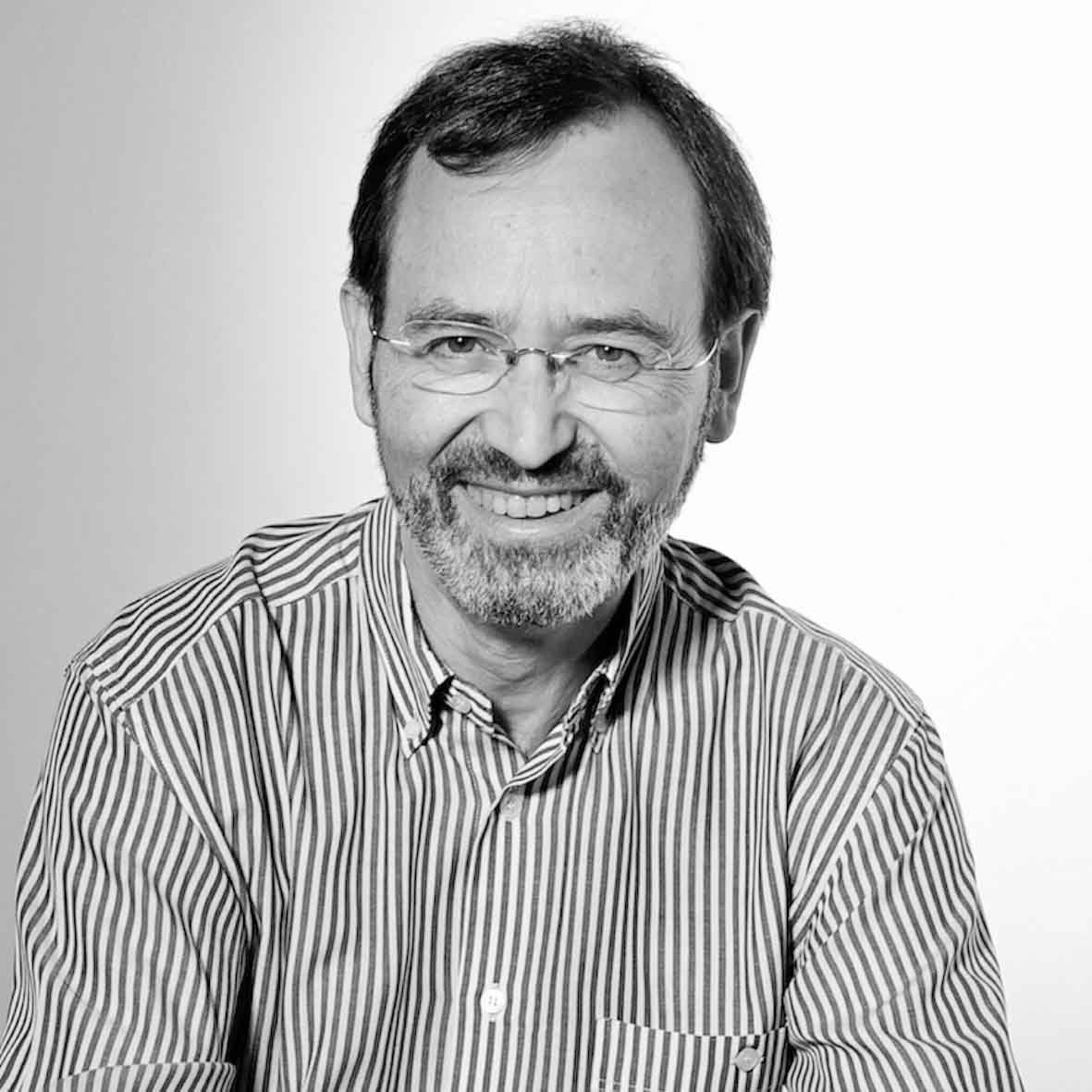
Alberto T. Estévez
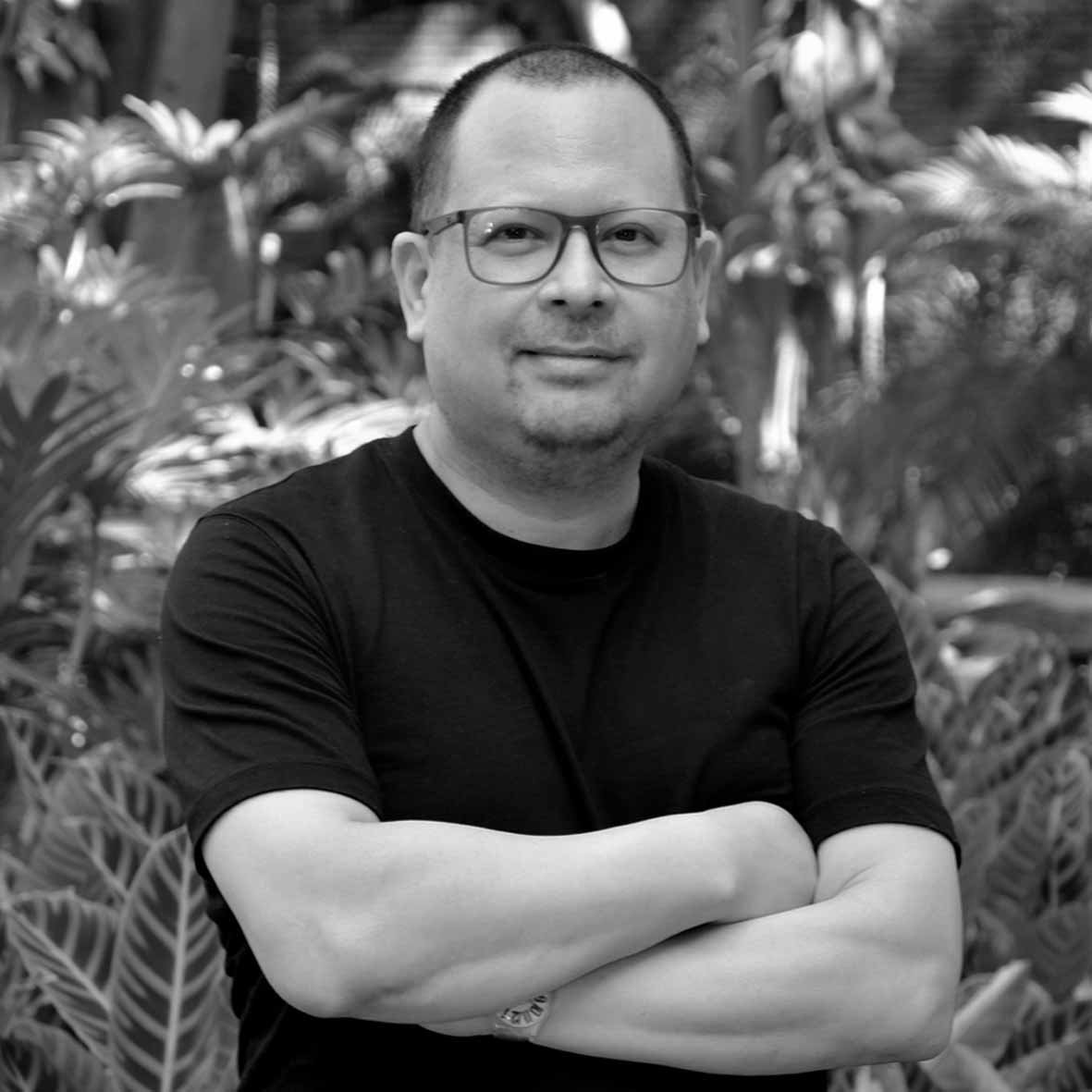
David A. Torreblanca-Díaz
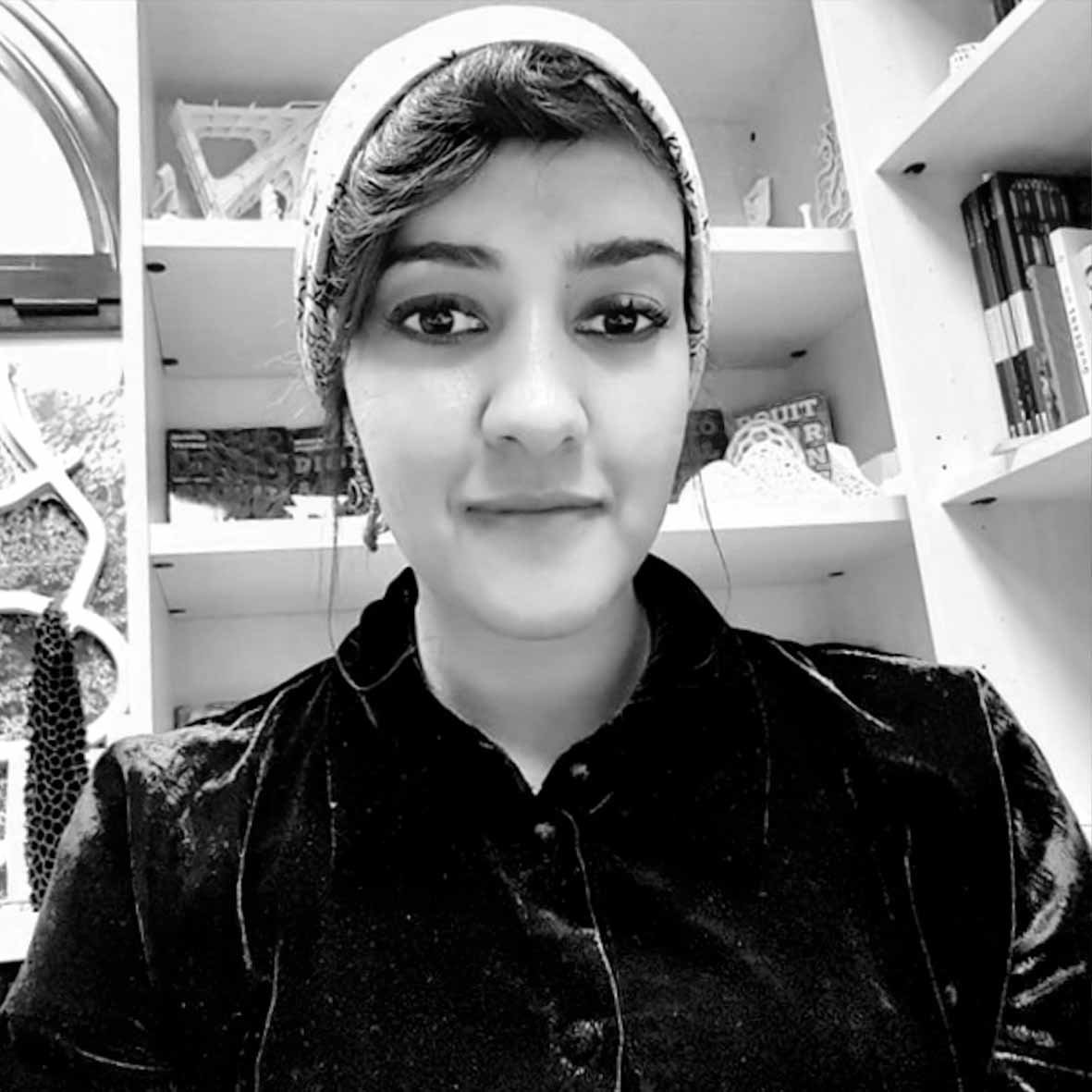
Yomna K. Abdallah
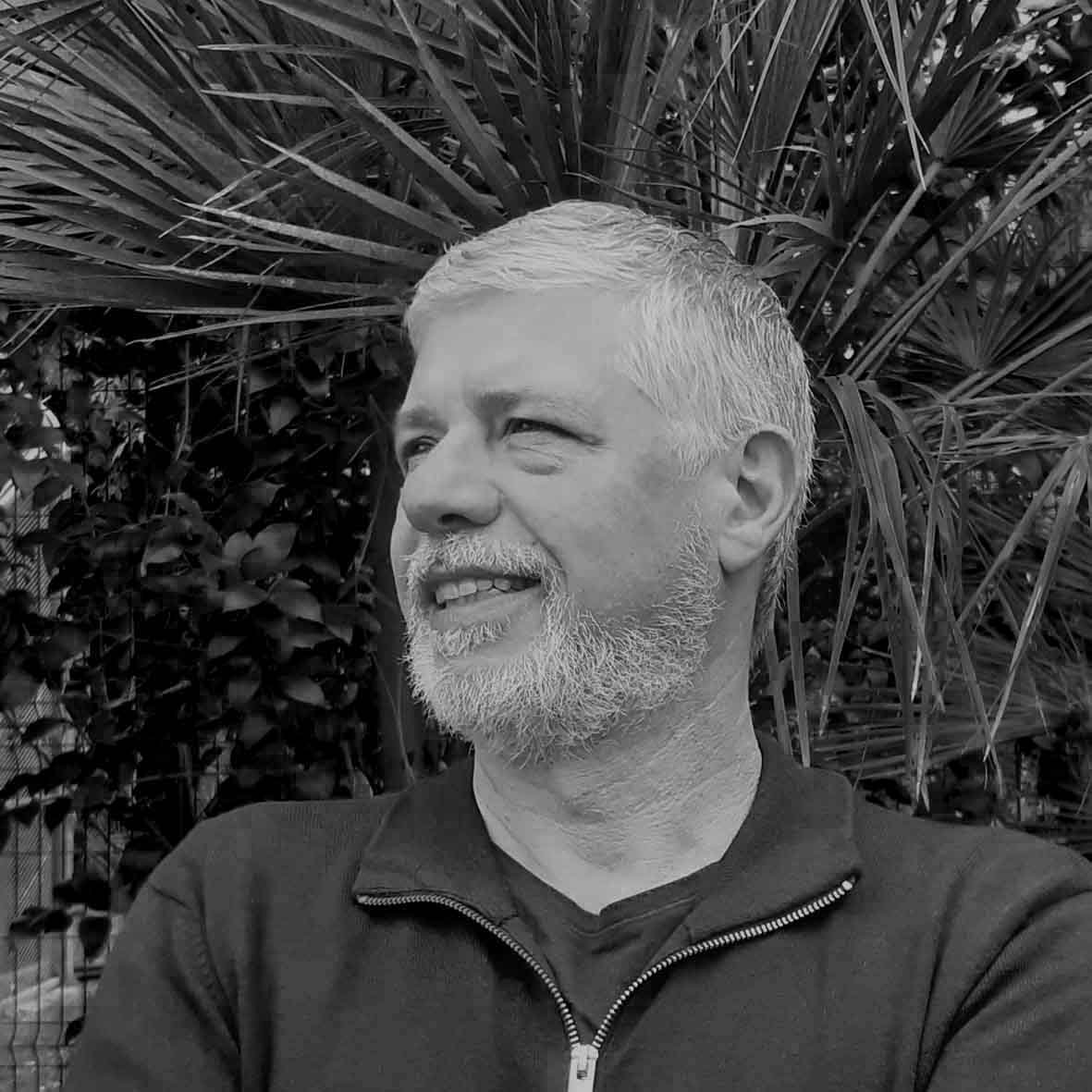
Affonso Orciuoli
Local Organizing Committee
Khadija Al Chami, Julia Almaraz, Natalia Alonso, Natalia de Andrade, Pablo Baquero, Cristóbal Becker, Nicola di Biase, Daniela Frogheri, Effimia Giannopoulou, Pablo Lorenzo-Eiroa, Konstantina Melachropoulou, Justyna Morawska,Nohemi Pacheco, Sandra Sánchez, Nadin Tarek, Ariel Valenzuela, Cristian Vinicius, Angad Warang, Emad Zarifzakerianmosibat, Naomi Zaucedo.
Main theme
Biodigital intelligent systems
Biodigital intelligent systems refer to a confluence of principles from biology, digital technology, and artificial intelligence (AI) to create intelligent systems inspired by living organisms through a systemic approach. This field encompasses a wide range of interdisciplinary areas, including bio-inspired robotics, artificial life, evolutionary algorithms, computational neuroscience, and more. They often draw inspiration from biological structures, processes, and mechanisms, highlighting the power of biological systems and natural intelligence to create advanced and innovative technologies to adapt, learn, and solve complex problems. By emulating the principles and mechanisms observed in living organisms, these systems can exhibit remarkable capabilities such as self-organization, self-repair, robustness, and adaptability. Examples include bio-inspired robots to navigate challenging terrains, swarm robotics systems inspired by the collective behavior of social insects, neural networks based on brain, evolutionary algorithms to optimize complex tasks by mimicking natural selection and genetic variation. Finally, Biodigital Intelligent Systems are changing our world and pushing it towards a Biodigital future.
AI generated images by © Alberto T. Estévez + Yomna K. Abdallah
Tracks
Subtopics and keywords
Design theories, methodologies, and conceptual models. Digital architecture and design history. Digital strategies. Design cognition, and project communication. Hacker/maker culture, DIY, and FabLabs. Decentralized design. Decolonizing Design. Collaborative and collective design.
Subtopics and keywords
New pedagogies, strategies, and methodologies. Lifelong Learning and Digital Education. Hybrid Education. Online Learning. Collaborative and Participative Design in education.
Subtopics and keywords
Digital fabrication and Industry 4.0. Robotics. Digital craft. Integrated manufacturing systems. Emerging digital fabrication systems. Design for Manufacturing and Assembly.
Subtopics and keywords
Formal patterns. Shape grammars. Fractal geometries. Generative Design. Parametric Analysis. Machine Learning. Predictive Modeling. Building Information Modeling (BIM).
Subtopics and keywords
Virtual Reality (VR). Augmented Reality (AR). Mixed Reality (MR). Digital interfaces. Metaverse. Phygital interaction.
Subtopics and keywords
Interaction design. Human-Computer Interaction. Internet of Things (IOT). Interactive and responsive objects. Smart Cities.
Subtopics and keywords
Biologically informed disciplines (biodigital, biomimicry, bionics, biophilia, etc). Biodigital architecture, urbanism and ecosystems. Biodigital product design and fashion design. Sustainable design. Biomanufacturing and biomaterials. Artificial intelligence and biodigital intelligent systems.
Subtopics and keywords
Convergences through new technologies, architecture, design and cinema. Artistic installations and performances. Mapping. Audiovisual approaches. Artificial intelligence and media art. Video game design.
Subtopics and keywords
Performance-based design. Simulations: Finite Element Analysis (FEA), Computational Fluid Dynamics (CFD), thermal analysis, solar simulations, kinematics simulations, etc. Analytics.
Venue
Barcelona
•Ranked among the best cities to live in internationally.
•One of the world’s leading cities in innovation, business, culture, art and design.
•The chance to practice Spanish, the world’s second most-spoken language.
•Climate, cuisine, cultural activities, architecture, night-life, safety, friendliness, beach, mountains.
•Excellent scientific facilities (Barcelona Supercomputing Centre, The Alba Synchrotron, Biocat, Science and Technology Park Network…).
•Catalonia is home to 250,000 students, 15,000 lecturers, 800 research groups and 2,500 researchers.
Photos by © David A. Torreblanca-Díaz and © Alberto T. Estévez
Barcelona tourist attactions
*Important: these following links are only recommendations and are not the responsibility of the SIGraDi 2024 organizers.
Tourist attractions
Barcelona GO! – A Rob Whitworth Time-lapse
Tours de arquitectura en Barcelona
https://www.artchitectours.es/tour/tours-de-arquitectura-en-barcelona-sigradi-2024/
City Tour Barcelona
Link Barcelona city tour website
La Sagrada Familia
Casa Batlló
La Pedrera-Casa Milà
Park Güell
Museo Picasso
https://museupicassobcn.cat/es
Palau de la música
Catedral de Barcelona
Fundación Mies Van Der Rohe
https://miesbcn.com/the-pavilion/
Centro de Cultura Contemporánea de Barcelona
Museo de Ciencias Naturales de Barcelona
Museo de Arte Contemporáneo de Barcelona
Accommodation
Hotels
Visas information
Spain Visa Information
Josep Tarradellas Barcelona-El Prat airport
https://www.aena.es/en/josep-tarradellas-barcelona-el-prat.html
About UIC
Universitat Internacional de Catalunya -UIC- / Google Map Link
Sarrià train station / Station near to UIC, around 15 minutes walking
Schedule
November 4 – 8th
Online Workshops
November 11 – 12th
In person Workshops
November 13 -15th
In person conference
Wednesday 13th
Research in the Biodigital Era / Natural & Artificial Intelligence
09:00 – 9:30 REGISTRATION
09:30 – 10:00 OPENING CEREMONY and WELCOME SPEECHES
10:00 – 11:30 KEYNOTE SPEAKER: Jordi Faulí, Gaudí Sagrada Familia Architect Director
11:30 – 12:00 COFFEE BREAK – Garden
12:00 – 13:00 PAPERS PRESENTATIONS in 4 simultaneous rooms
13:00 – 14:00 PAPERS PRESENTATIONS in 4 simultaneous rooms
14:00 – 15:00 LUNCH TIME – Garden
15:00 – 16:00 PAPERS PRESENTATIONS in 4 simultaneous rooms
16:00 – 17:00 PAPERS PRESENTATIONS in 4 simultaneous rooms
17:00 – 17:30 COFFEE BREAK – Garden
17:30 – 18:30 PAPERS PRESENTATIONS in 4 simultaneous rooms
18:30 – 19:30 ROUND TABLE 1: Research in Biodigital Era / Natural & Artificial Intelligence.
Moderator and speaker: Neil Leach, Professor, Curator and Writer
19:30 WELCOME SOCIAL EVENT
THURSDAY 14th
Teaching in the Biodigital Era / Biological World (& Digital Intersections)
09:30 – 10:00 RECEPTION: AI VIDEOS
10:00 – 11:30 KEYNOTE SPEAKER: Marcos Cruz, Bartlett School of Architecture. Presented by CHAOS GROUP
11:30 – 12:00 COFFEE BREAK – Garden
12:00 – 13:00 PAPERS PRESENTATIONS in 4 simultaneous rooms
13:00 – 14:00 PAPERS PRESENTATIONS in 4 simultaneous rooms
14:00 – 15:00 LUNCH TIME – Garden
15:00 – 16:00 PAPERS PRESENTATIONS in 4 simultaneous rooms
16:00 – 17:00 PAPERS PRESENTATIONS in 4 simultaneous rooms
17:00 – 17:30 COFFEE BREAK – Garden
17:30 – 18:30 PAPERS PRESENTATIONS in 4 simultaneous rooms
18:30 – 19:30 ROUND TABLE 2: Teaching in the Biodigital Era / Biological World (& Digital Intersections).
Moderator and speaker: Yomna K. Abdallah, iBAG-UIC Barcelona
21:00 – 23:55 GALA DINNER in restaurant “El Asador de Aranda”
FRIDAY 15th
Practice in the Biodigital Era / Digital World (& Biological Intersections)
09:30 – 10_00 RECEPTION: AI VIDEOS
10:00 – 11:30 KEYNOTE SPEAKER: Benedetta Tagliabue, EMBT Architects
11:30 – 12:00 COFFEE BREAK – Garden
12:00 – 13:00 PAPERS PRESENTATIONS in 4 simultaneous rooms
13:00 – 14:00 PAPERS PRESENTATIONS in 4 simultaneous rooms
14:00 – 15:00 LUNCH TIME – Garden
15:00 – 16:00 PAPERS PRESENTATIONS in 4 simultaneous rooms
16:00 – 17:00 ROUND TABLE: Practice in the Biodigital Era / Digital World (& Biological Intersections).
Moderator and speaker: Rosa Cervera, Sustainable & Bionic Architecture
17:00 – 17:30 COFFEE BREAK – Garden
17:30 – 18:30 CLOSING CEREMONY.
SIGraDi Annual General Meeting / Awards / Workshops presentations / CAAD Conferences presentations / SIGraDi 2025 Launching
D1.S1.A= DAY 1 / SESSION 1 / ROOM A
D2.S3.D= DAY 2 / SESSION 3 / ROOM D (Aula Magna)
*D= Aula Magna
*The presentations were organized by language, however you can make your presentation in any of the official languages of SIGraDi: English, Spanish or Portuguese.
SIGraDi 2024 Online Schedule
Schedule options:
* If you select “SEARCH” at the bottom of the screen in MOBILE PROGRAM you can see your PERSONAL SCHEDULE as SPEAKER (TALKS) or /and SESSIONS if you are SESSION CHAIR.

Keynotes
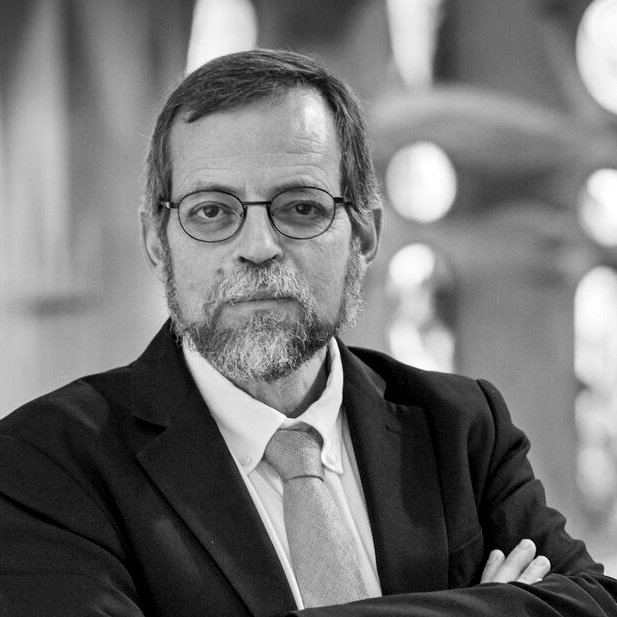
Jordi Faulí
Jordi Faulí, is an architect and, since 2012, he is the current directing architect of the Sagrada Familia Basilica. In 1990 he joined the works of the temple within the team directed at that time by Jordi Bonet, and collaborated in the structural analysis of this Gaudinian church, incorporating new technologies (CAD, computer simulation, 3D images) to prepare a virtual plan of the temple that would allow the project developed by Gaudí to be recreated down to the last detail and carried out.
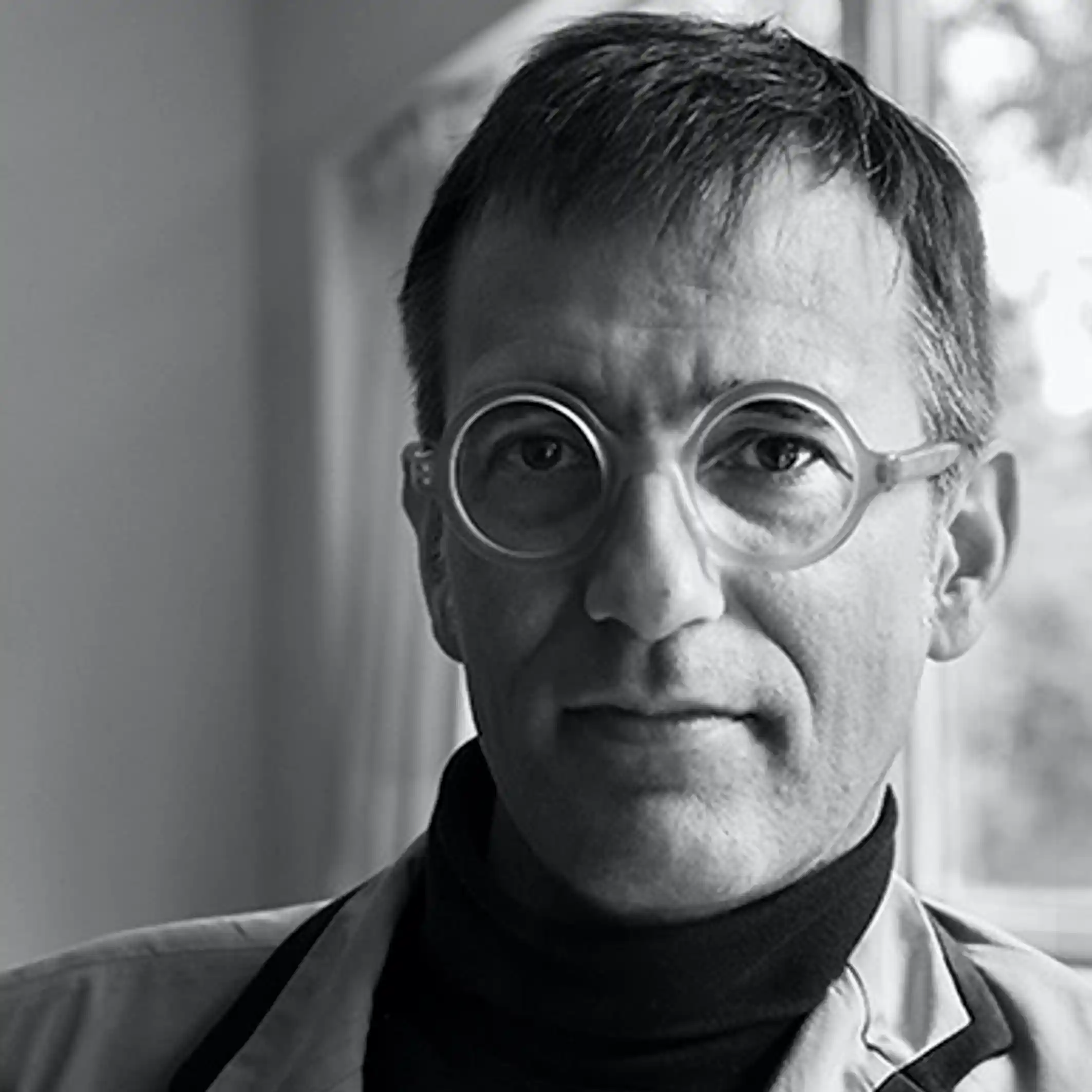
Marcos Cruz
Marcos Cruz, is an architect and professor of Innovative Environments at the Bartlett, UCL. His main research focuses on bio-integrated design in buildings. He runs Bio-ID with Dr. Brenda Parker, a multidisciplinary research platform and Masters programme that investigates design that is driven by advances in bio-technology, computation, materials and fabrication. He was co-editor of Syn.de.Bio and founder of the BiotA Lab (2014-18). Cruz was the Director of the Bartlett from 2010-14.
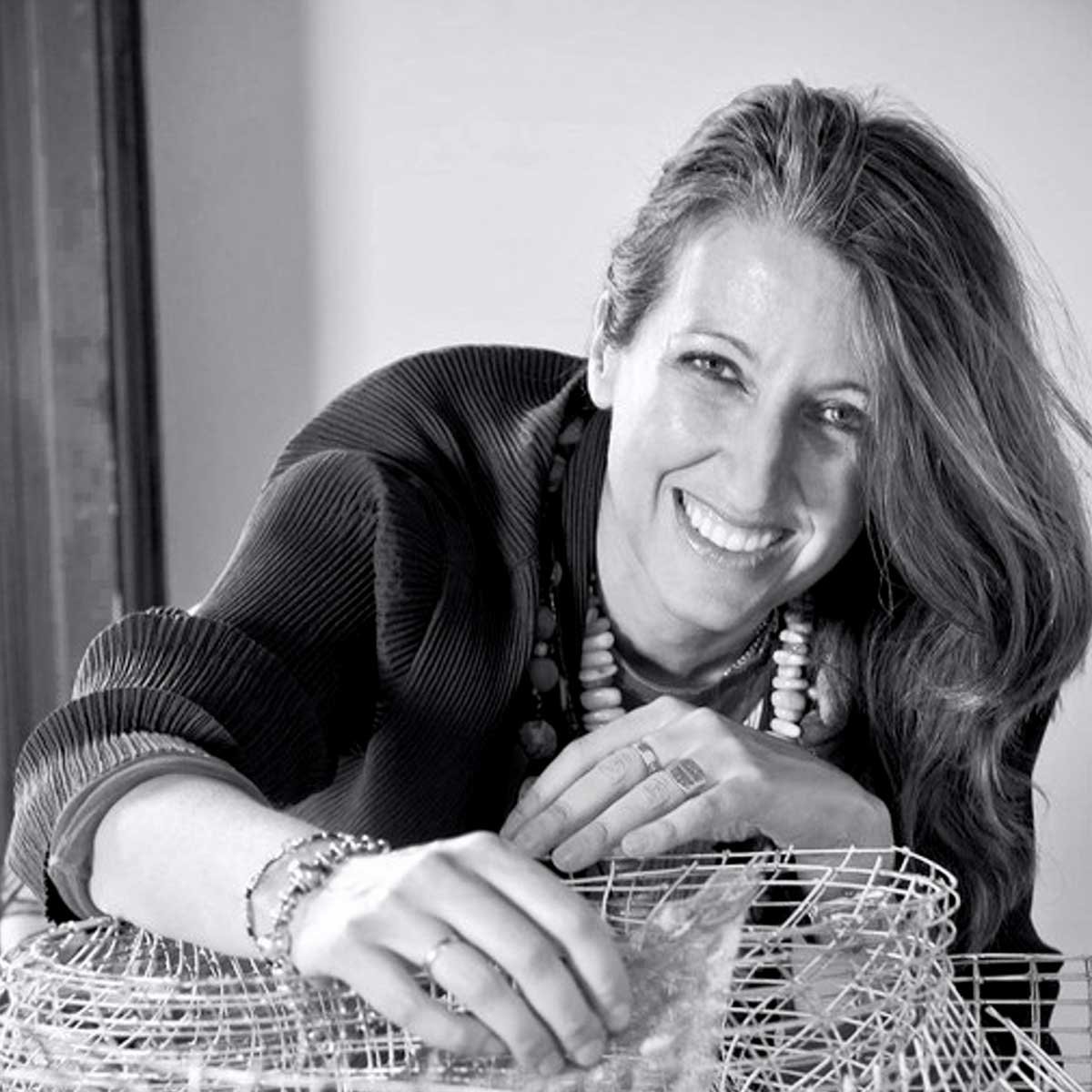
Benedetta Tagliabue
Benedetta Tagliabue, is an internationally renowned architect founder with Enric Miralles (1955-2000) of the international studio EMBT Architects, with offices in Barcelona (HQ), Shanghai, and Paris. Amongst her most notable works include the New Scottish Parliament Building in Edinburgh, the Santa Caterina Market, the Headquarters of Gas Natural Fenosa and the Diagonal Mar Park in Barcelona, the Spanish Pavilion for World Expo Shanghai 2010 (winner of the prestigious RIBA Best International Building 2011 Award).
Round table discussion
Research in Biodigital Era / Natural & Artificial Intelligence
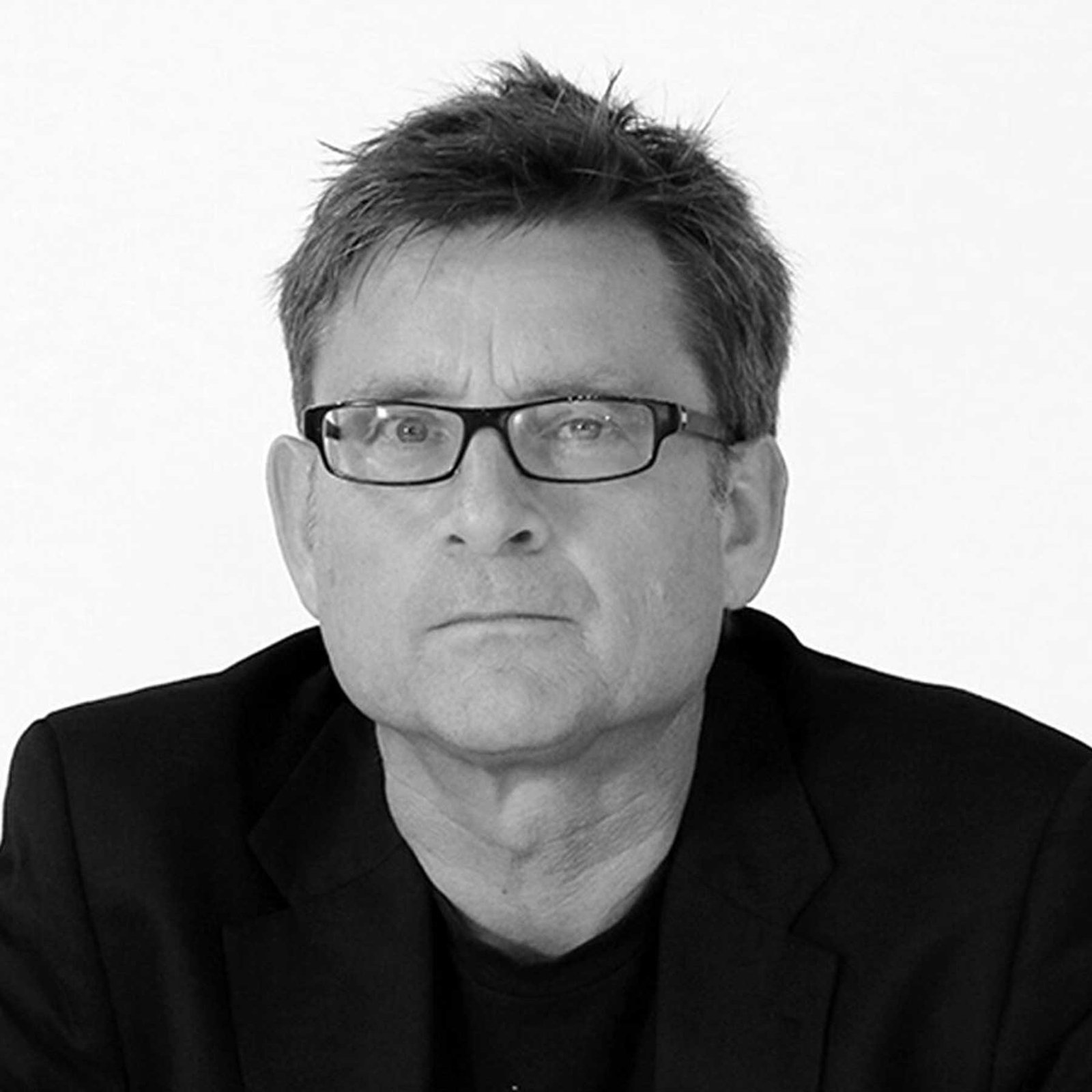
Moderator: Neil Leach
Neil Leach, is a British architect and theorist. He is Professor at Florida International University, the European Graduate School and Tongji University. He has also taught at the AA School of Architecture, Harvard, Columbia, Cornell, SCI-Arc, Southern California, Nottingham, Bath, Brighton, Dessau Institute of Architecture, Royal Danish Academy of Art, etc. He is currently the Director of the Doctor of Design program at Florida International University. He is co-founder of DigitalFUTURES.
Teaching in the Biodigital Era / Biological World (& Digital Intersections)

Moderator: Yomna K. Abdallah
Yomna K. Abdallah, professor at ESARQ-UIC Barcelona (the School of Architecture of the Universitat Internacional de Catalunya). Deputy Director of the iBAG-UIC Barcelona (Institute for Biodigital Architecture & Genetics) and the Master Program in Biodigital Architecture. Her research interest is focused on embedding bioactive agents in the built environment, through biomaterials, Engineered living materials and biosystems (bioreactors). Co-author of many research papers and projects on her research line.
Practice in the Biodigital Era / Digital World (& Biological Intersections)
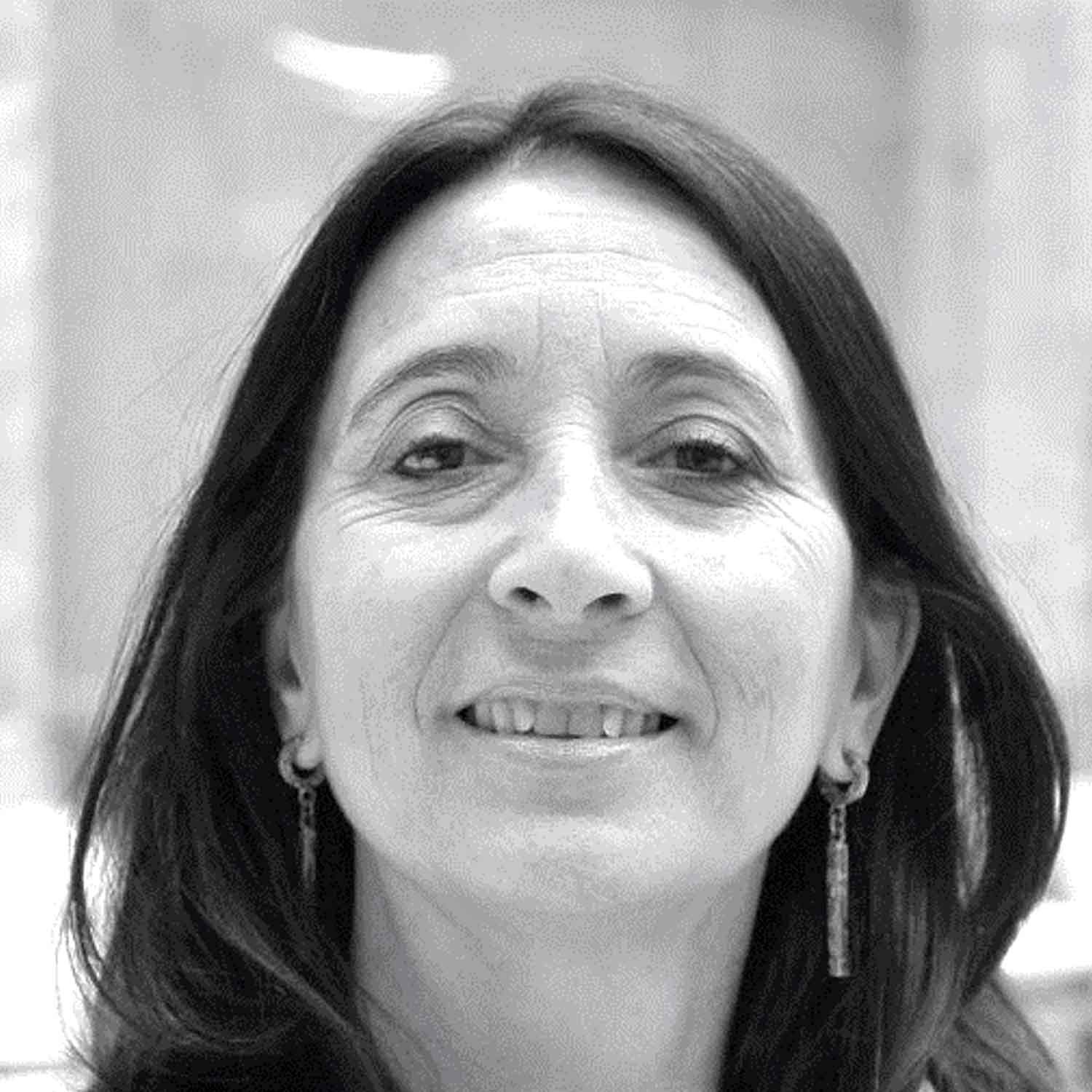
Moderator: Rosa Cervera
Rosa Cervera, architect (ETSAM, 1978), doctor (UPM, 1989), and internationally recognized for her research on sustainable and bionic architecture. She has taught Composition and in several university master’s degrees, such as the University Master’s Degree in Advanced Architecture and City Projects. She has been Director of the School of Architecture at the University of Alcalá (2004-07), Professor since 2018, and professor at various universities, such as Columbia (2009-10) and Miami (2015).
Dates
Important dates
April 08
Deadline for Abstract Submission
May 17
Notification of Abstract Acceptance
July 22
Deadline for Full Paper Submission
September 09
Notification of Full Paper Acceptance
October 14
Submission of final conference papers
November 04 - 08
Online workshops
November 11 - 12
In person workshop
November 13 - 15
Conferences
After November 15: enjoy Barcelona!
Submissions
Stage 1: Call for abstracts SIGraDi 2024 is closed
We are pleased to announce the call for abstracts for the SIGraDi 2024 Conference. We invite you to submit abstracts of academic research and professional practice by April 8th. Abstracts must be original and unpublished, they cannot be sent simultaneously to another conference or journal, and they must be written following the guidelines of the APA 7th standard in one of the three official SIGraDi languages (Spanish, Portuguese, or English). The texts must contain 450 – 550 words in addition to references and be organized according to the following structure.
Title: The name of the work must be concise and consistent with the purpose of the study.
Keywords: 5 keywords (mandatory) that identify the project.
Introduction: General and specific problems, objectives, and relevance.
Methodology: Methods, stages, and techniques.
Results: Key findings or expected results.
Discussion: Contribution and impact.
References: Relevant sources.
Evaluation criteria
The text of the abstract should not mention the names of the authors or their institutions. The abstracts will be reviewed by a blind international scientific committee under the following criteria:
- General organization.
- Concordance with the main theme or tracks.
- Originality.
- Relevance.
- Quality of the methodology.
- Quality of references.
Publications
Authors with accepted abstracts will be able to submit their full articles for a second phase of blind review. The accepted full texts will be published in the Proceedings book with ISBN and on the Cumincad Open Access platform.
Stage 2: Call for full conference
paper SIGraDi 2024 is closed
Deadline for full paper submission: July 22
*This stage is only for authors accepted in abstract stage.
Welcome to the SIGraDi 2024 Conference Full Paper Stage submission process.
Keep in mind that to be author, present your text as oral presentation, publish it in the SIGraDi 2024 Proceedings book and Cumincad database it is mandatory to be ACCEPTED in the FULL PAPER stage.
Check list:
- Use the template and check font sizes, justification, margins, etc.
- Number of pages strictly 10 or 12 (Abstract, Keywords, Content, Figures, Tables, and References), not 9, not 11, not 13 pages.
- The Title, Abstract and Keywords must be in English.
- The content must be in Portuguese, English or Spanish, please dont mix languages.
- The APA 7 reference style must be used.
- All Figures must indicate authorship.
- Do not use footnotes or page numbers in any part of the paper.
- Author or institution information should be omitted in the blind review process.
- Update OpenConf Profile.
- Upload your submission, only an unique file in PDF.
Download Full paper Template
Please review for a few minutes the following information that contextualizes the use of template (Download DOCX file), update your submission (upload PDF file), update new information (OpenConf), and the criteria to evaluate your submission.
Download Full paper Template on this link:
The submissions should include only *.pdf files. The files should be named according to their ID number (i.e., ID_100.pdf).
Author or institution information should be omitted in the blind review process.
The extension of the Conference Papers is strictly 10 or 12 pages (not 9, not 11, not 13 pages), and between 2500 and 3500 words depending on the number of figures, tables, and references.
The paper title, abstract and keywords are in English, to disseminate the works internationally and meet indexing requirements. For this submission and oral presentations, authors can use any of the official languages of SIGraDi (Spanish, Português or English).
Update your information
If you have made changes at this stage, it is imperative that you update that information in OpenConf (eg author names, submission title, email, etc).
The Conference Paper will be peer-reviewed by an International Scientific Committee with recommendations under the following evaluation criteria:
- Concordance with the main theme of the conference Critical Appropriations and tracks
- Originality of the topic, research problem or project. The conference paper should contain original research that has neither been published nor submitted for publication elsewhere.
- Relevance of the contribution to the field.
- Methodology or techniques used;
- Quality of references;
- General organization of the conference paper according to the guidelines.
Conference Proceeding Book and Index. The accepted conference papers will be published in the Conference Proceedings (ISBN), as well as on the Cumin CAD database.
Invitations to Journals
Authors with conference papers with the highest scores will be invited to present an extended version for the International Journal of Architectural Computing (IJAC), published by SAGE Journal, as well as for the journal Gestão & Tecnologia de Projetos published by the Universidade de São Paulo.
As this is a blind review process, the Conference Paper should not mention the names of the authors or the institution, nor any indication of authorship. Each registration in the congress will allow one publication and one presentation.
If you have questions, please contact to the SIGraDi 2024 team at the following email: sigradi2024@sigradi.org
Accepted and rejected full papers
On this link you can check your STATUS (ACCEPTED and REJECTED) and the reviewer’s comments, please write your SUBMISSION ID and PASWORD:
Accepted author, please keep in mind:
- To be able to present in person, publish your text in the SIGraDi 2024 Proceedings book and Cumincad database it is mandatory to pay the REGISTRATION, AUTHOR category. You can find the Registration link below. *Deadline for registration is October 07th
*If you have been accepted and you cannot go to Barcelona, you can publish your full paper in the SIGraDi 2024 Proceedings book and Cumincad database after you pay the registration as AUTHOR, but all presentations will be in person, there will be not online presentations, there will be not streaming.
- It is mandatory to upload your final full paper file in Open Conf Platform in Camera Ready Stage (instructions will be shared soon)
For more information, write us:
sigradi2024@sigradi.org
Stage 3: Camera-ready is closed
Deadline for final full paper submission: October 14th
*This stage is only for authors accepted in full paper stage.
Welcome to the SIGraDi 2024 Camera-Ready submission process. This will use an automated system to upload the full papers on the OpenConf platform. This system is highly demanding with MS Word Styles and SIGraDi Guidelines.
To be considered as an author, you must be ACCEPTED in the FULL PAPER stage, upload your CAMERA-READY copy (final full paper) and make a REGISTRATION payment for SIGraDi 2024. Subsequently you will be able to make an oral presentation, publish your paper in the SIGraDi 2024 Proceedings book and CumInCAD database.
Please be reminded that your CAMERA-READY copy (final full paper) is published as is, without revisions. It is imperative that you adhere to the instructions below using the TEMPLATE.
Camera-Ready submission path
Please follow these 6 steps strictly:
1. Update your profile and metadata in Openconf platform
It’s mandatory to EDIT your SUBMISSION and update your profile and metadata information. This Camera-Ready paper is only for the proceedings book, but critical information is not automatically updated in OpenConf platform. Your Camera-Ready Paper must be identical to the Title, Abstract, Keywords, Author(s) and Institution(s) of your OpenConf submission form. OpenConf will obtain the metadata for the Proceedings Conference Book, Conference Program and CumInCAD database.
2. Download Camera-Ready paper template
*It is mandatory to use this new template to upload it to the OpenConf platform. Please note that the template looks the same as the full paper template, but it has technical adjustments.
3. Update your full paper in the new Camera-Ready paper template
To update your Camera-Ready copy (final full paper) in the new template, please consider the comments of reviewers and editorial guidelines.
4. Check list:
- Edit your information (profile and metadata) with the Camera-ready information in OpenConf.
- Use the new Camera-Ready template and check font sizes, justification, margins, etc.
- Number of pages strictly 10 or 12 (Abstract, Keywords, Content, Figures, Tables, and References), not 9, not 11, not 13 pages.
- The Title, Abstract and Keywords must be in English.
- The content must be in Portuguese, English or Spanish, please don’t mix languages.
- The APA 7 reference style must be used.
- All Figures must indicate authorship.
- Do not use footnotes or page numbers in any part of the paper.
- Author and institution information must be included in this final version.
5. Upload your ZIP final submission
*Please check that the WORD STYLES are correct exactly as in the TEMPLATE.
- Compress the MS Word and PDF files of your Camera-Ready copy (final full paper) into a single ZIP file.
How do I make a single zip file?
- Upload your ZIP File. To start the submission process, go to the OpenConf Upload File section. Submissions should include a single*.zip file containing 2 files (*.docx, *.pdf). The files should be named according to their ID number (i.e., 100.docx, 100.pdf, 100.zip).
¿How do I know if my file has been uploaded correctly?
Once you upload the ZIP file, your submission may be rejected due to errors in the templates or APA Standards, you will receive a message showing the errors and you can re-upload the file as many times as necessary, see image below.
You can watch this video kindly provided by ecAADe Conference. This video shows the process to upload the final full papers (ZIP file), please note that eCAADe uses a different template, but it is the same process.
6. Make a registration and payment
LINK: Registration and payment
If you have any question, please contact to the SIGraDi 2024 team at the following email: sigradi2024@sigradi.org
Publications

SIGraDi 2024 Proceedings Book
Certificates
All SIGraDi 2024 categories of certificates are available at the following link.
Workshops
SIGraDi 2024 Workshops
Welcome to SIGraDi workshops!
We are excited to welcome you to this year’s SIGraDi workshops, where we will delve into the transformative world of Biodigital Intelligent Systems. This year’s theme centers on the convergence of biology, digital technology, and artificial intelligence to reshape architecture, design, and art.
Requirements
All people who have paid for a SIGraDi 2024 registration can participate in the workshops, including: author, attendee, student and only membership. For each registration each person has the right to participate in only one workshop (online or in person).
*Except for the PhD workshop which is free.
Registration and payment
Online workshops
Call for proposals is closed
SIGraDi 2023 workshops images
Alberto Fernández, Universidad de Chile, Chile.
Online Workshops Coordinator
We are pleased to invite you to submit your proposals for the SIGraDi 2024 online workshops. This is a unique opportunity to reflect and share your knowledge on the application of digital and biodigital intelligent systems in architectural design and art, from research, teaching, and professional practice perspectives.
Below are the most relevant details for this 2024 call:
Selection Criteria for Instructors:
- Previous experience in workshops
- Coherence in handling the topic and performance
- Previous or current participation in SIGraDi (although open to all)
- Use of free or educational software
- Short CV, consistent with the workshop topic (1-page summary)
Topics to Consider:
- BioDigital Architecture and Design
- Digital-Driven Industrial and Product Design
- Digital-Driven Fashion, Textile and Jewelry Design
- Digital-Driven Urban Design
- Coding
- Artificial Intelligence
- VR/AR/XR
- Robotics for Architecture and Design
- Additive Manufacturing (simulation)
- Parametric, Generative design / BIM
- Performance-based Design
- Hacker / Maker Culture
*The workshops can be taught in Spanish, Portuguese or English.
Important Dates:
- Proposal submission deadline: August 12, 2024
- Confirmation of accepted workshops: September 9, 2024
- Online workshops: November 4-8, 2024
Workshop results will be part of the closing ceremony in Barcelona, being also included in the SIGraDi 2024 Proceedings Book with their respective tutors and participants, digital certificates will be included.
We look forward to your valuable participation and hope you can contribute your experience and knowledge to this space of learning and collaboration through the following link:
Google Forms: Sign-in
Access Google Forms with a personal Google account or Google Workspace account (for business use).
docs.google.com
For inquiries, contact: sigradi.oficial@gmail.com
Online Workshops offered
Online workshops information
Important Dates:
- Deadline for application: November 1st, 2024
- Online workshops: November 4-8, 2024
The application form for students can be found here:
In person Workshop: 3D Printing Bio-Parametric Lamps
Instructors:
Affonso Orciuoli, Universitat Internacional de Catalunya, Barcelona.
Mauricio Matias, Universidad Belas Artes, São Paulo.
Pablo Baquero, Faberarium, Barcelona
Important Dates:
- Deadline for application: November 1st, 2024
- In person workshop: November 11-12, 2024
The application form for students can be found here:
PhD Workshop
November 4-5 Online
We are excited to welcome you to this year’s SIGraDi PhD workshop. The PhD workshop is a space to challenge conventional thinking, explore interdisciplinary approaches, and push the boundaries of your research. Whether through computational neuroscience, AI-driven design tools, or biomimetic technologies, this is your opportunity to engage deeply with the themes of the conference and connect with peers and mentors who are shaping the next generation of architectural and design innovation.
We invite you to immerse yourself in this collaborative environment, share your research, and contribute to our research field. Together, we can pioneer new ways of thinking and working that will redefine the future of our disciplines.
The Committee will select the best presentation, whose author will receive a certificate and a SIGraDi Conference attendee registration (or reimbursement), which includes one year’s membership of the society. In addition, the best presentations could be selected for the Global Ph.D. Workshop.
*The PhD workshop is free (one case only).
Important Date
- Deadline for proposals submission: October 30, 2024
- Notification of proposals accepted: November 1, 2024
- Presentations submission: November 3, 2024
- PhD Workshop: November 4-5, 2024
Download PhD Workshop information
Link for Proposals Submission
PhD Workshop Committee:
- Frederico Braida, Universidade Federal de Juiz de Fora, Brazil
- Ph.D. Workshop Chair
- Alberto Fernández, Universidad de Chile, Chile – University College London, UK
- Online Workshops Coordinator
- Andressa Martinez, University of Maryland, USA
- Natália de Queiroz, Universidade Federal da Paraíba, Brasil
- Rodrigo Martin-Iglesias, Universidade de Buenos Aires, Argentina
Contact email: sigradi.oficial@gmail.com
Registration
SIGraDi 2024 in person conference registration
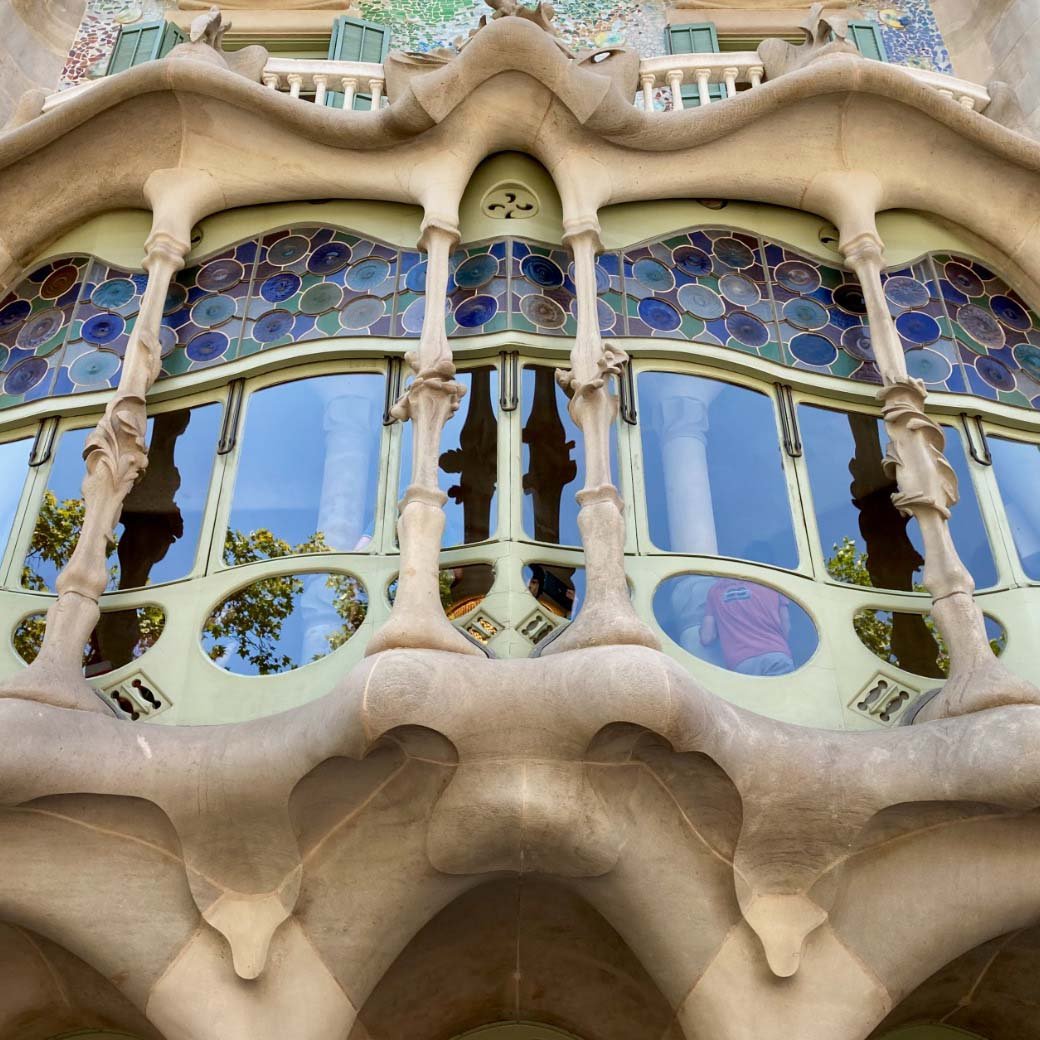
Author
€250
Author fee gives full access to all the conference activities, including keynotes and thematic tracks presentations, round tables, social activities, online workshops, and one-year membership in SIGraDi. Each author can publish up to a maximum of two full papers with this fee; the accepted full texts will be published in the Proceedings book with ISBN and on the Cumincad Open Access platform.
*Online workshops will be during the previous week of the conferences and with limited availability. You can only participate in one workshop for each payment.
*If you would like to participate in the Gala Dinner you can pay by selecting the option “Standard Fees Authors and Attendee + dinner” (302€) in the link below.
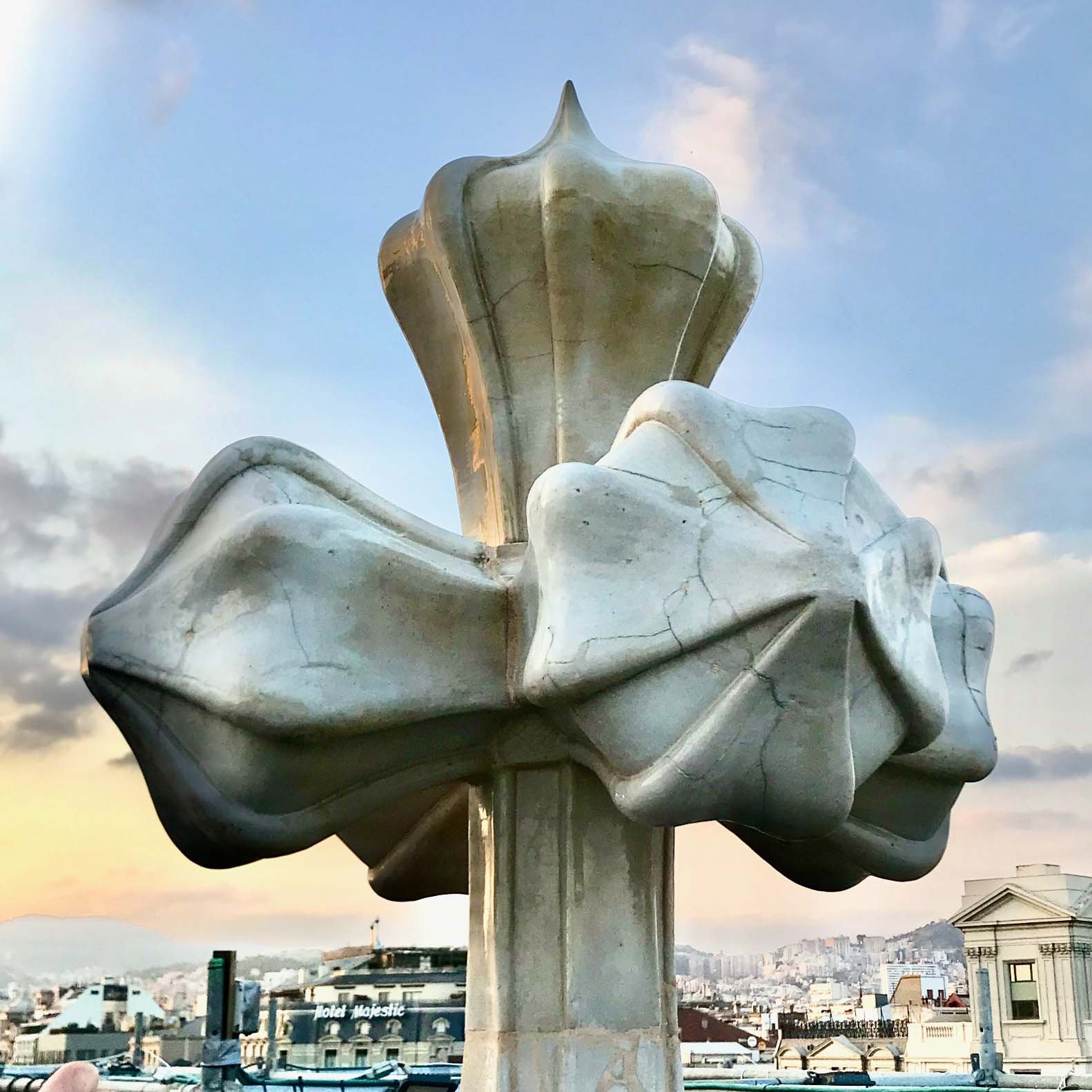
Attendee
€250
Attendee fee gives full access to all the conference activities, including keynotes and thematic tracks presentations, round tables, social activities, online workshops, and one-year membership in SIGraDi. Attendee fee does not include to do a conference presentation and full paper publication.
*Online workshops will be during the previous week of the conferences and with limited availability. You can only participate in one workshop for each payment.
*If you would like to participate in the Gala Dinner you can pay by selecting the option “Standard Fees Authors and Attendee + dinner” (302€) in the link below.
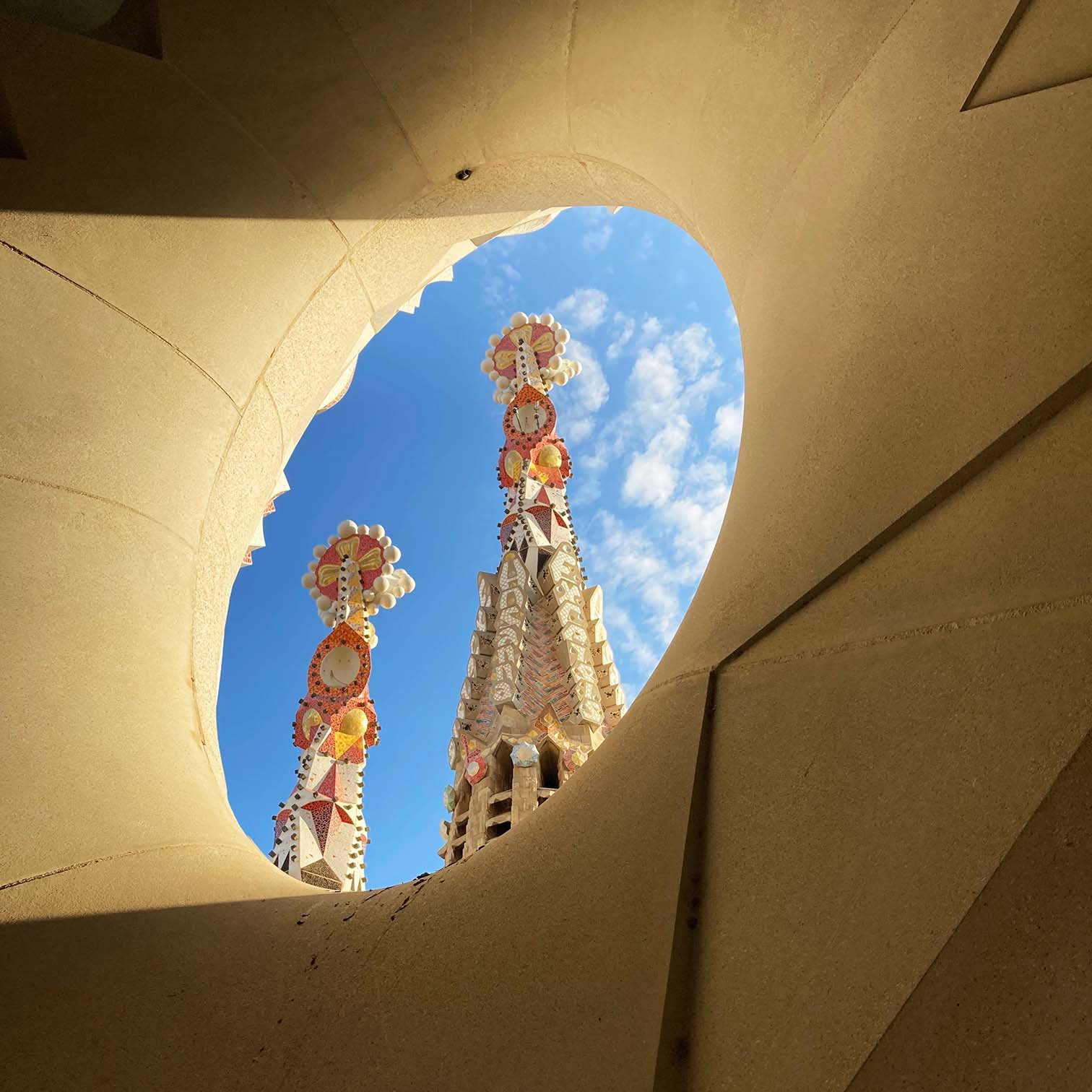
Student
€150
Student (Bachelor) fee gives full access to all the conference activities, including keynotes and thematic tracks presentations, round tables, social activities, online workshops, and one-year membership in SIGraDi. Student fee does not include to do a conference presentation and full paper publication.
*Online workshops will be during the previous week of the conferences and with limited availability. You can only participate in one workshop for each payment.
*Master and Doctorate student are not included in this category.
*If you would like to participate in the Gala Dinner you can pay by selecting the option ” Standard Fees students + dinner ” (202€) in the link below.
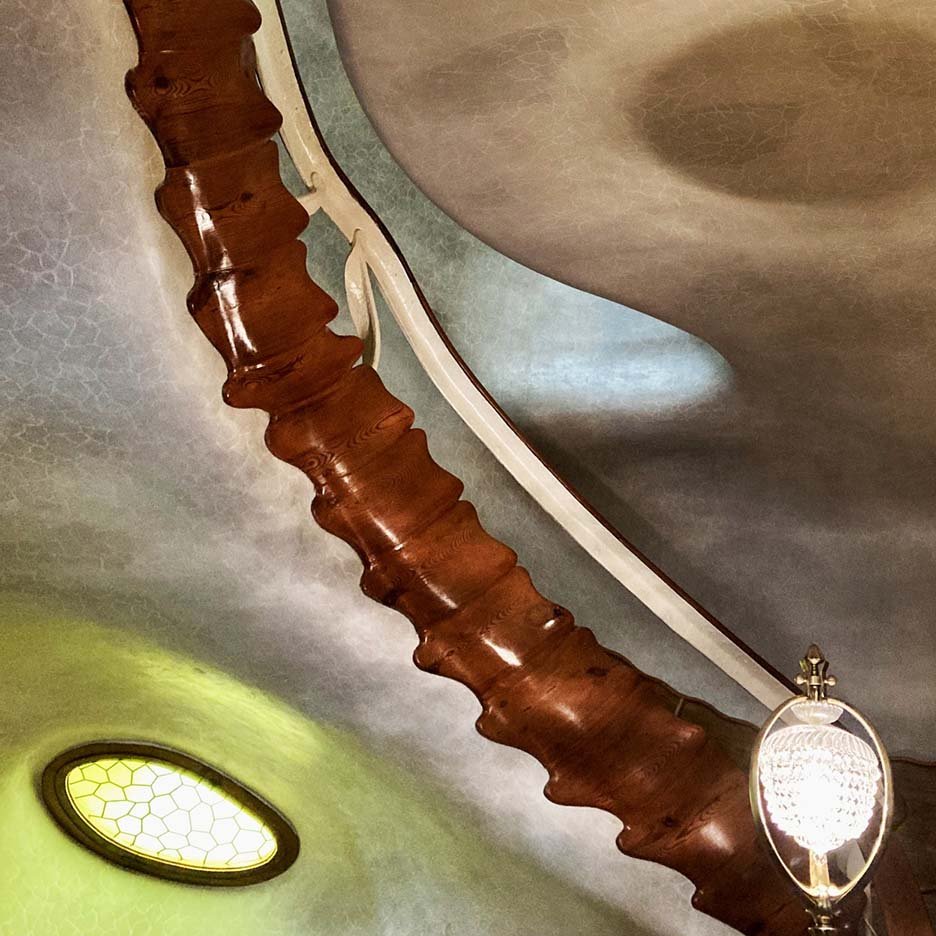
Only membership
€33
Membership fee gives only one-year membership in SIGraDi and does not give access to conference activities. Membership fee does not include to do a conference presentation and full paper publication.
*Gala dinner is not included in this registration payment.
To purchase ONLY a membership, please write to the following e-mail address
finances@sigradi.org
FAQs
Frecuently Asked Questions
How to get to UIC Barcelona?
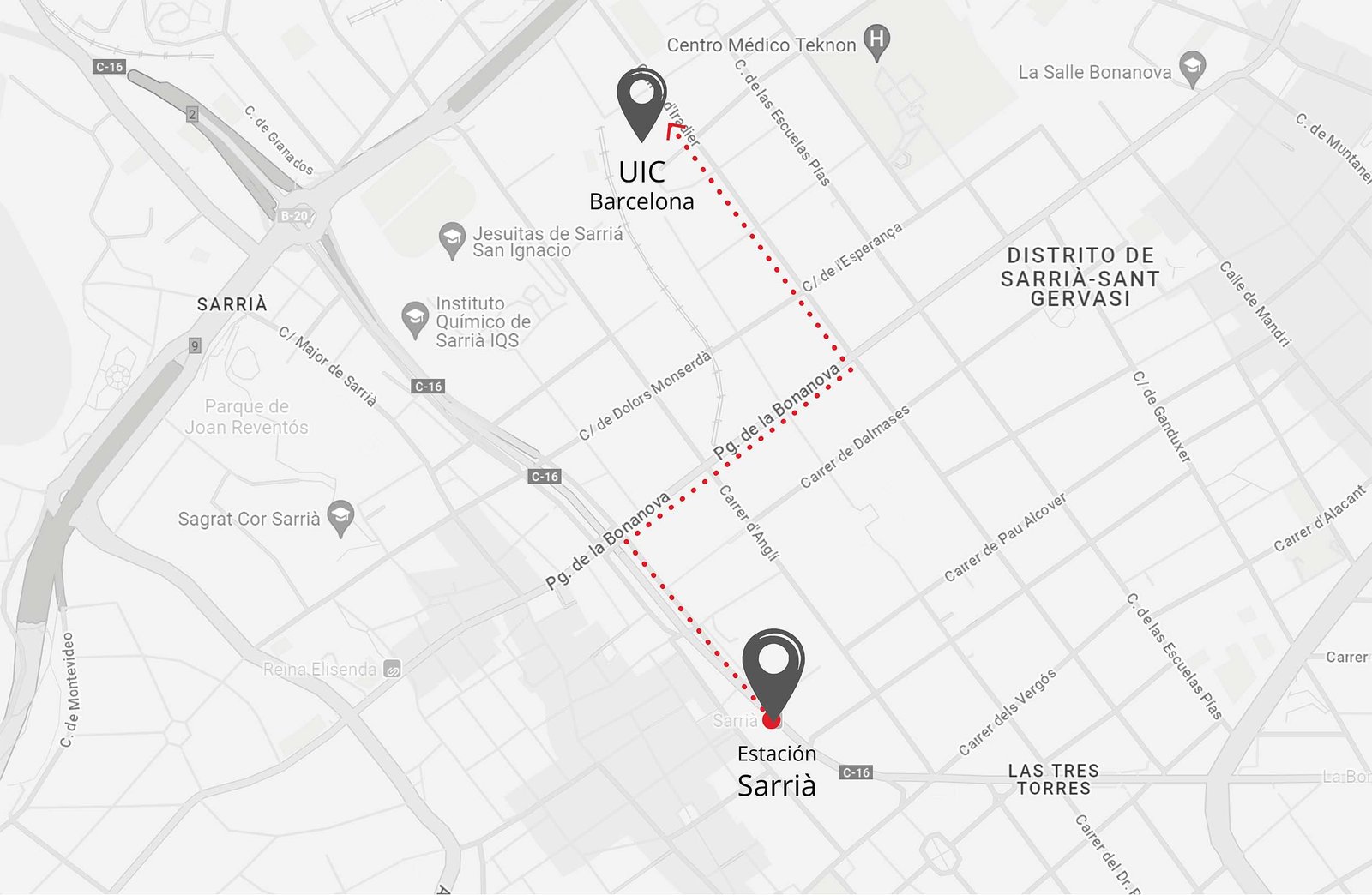
About 20 minutes walking distance, 1.3 kilometers away from UIC Barcelona.
Where to stay?
Visit the following link and see all the options near to UIC.
Google maps link
Where to eat?
See all dining options near UIC Barcelona.

